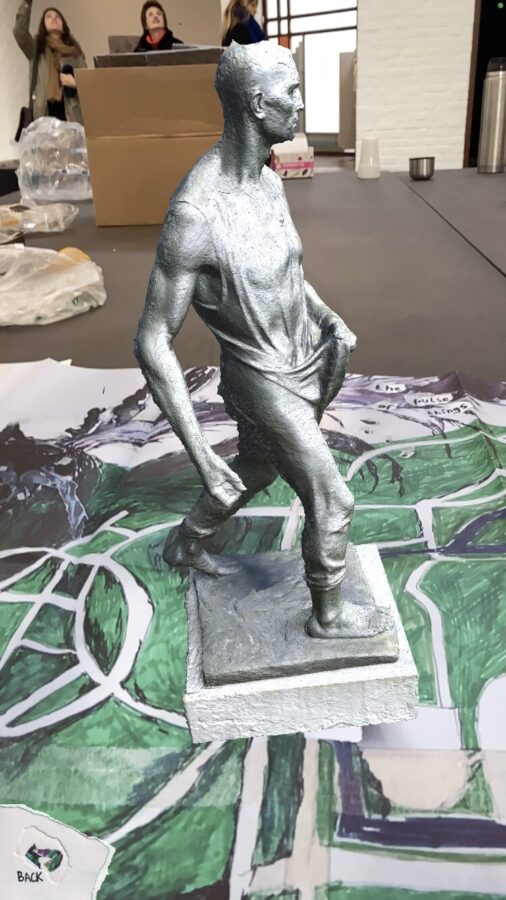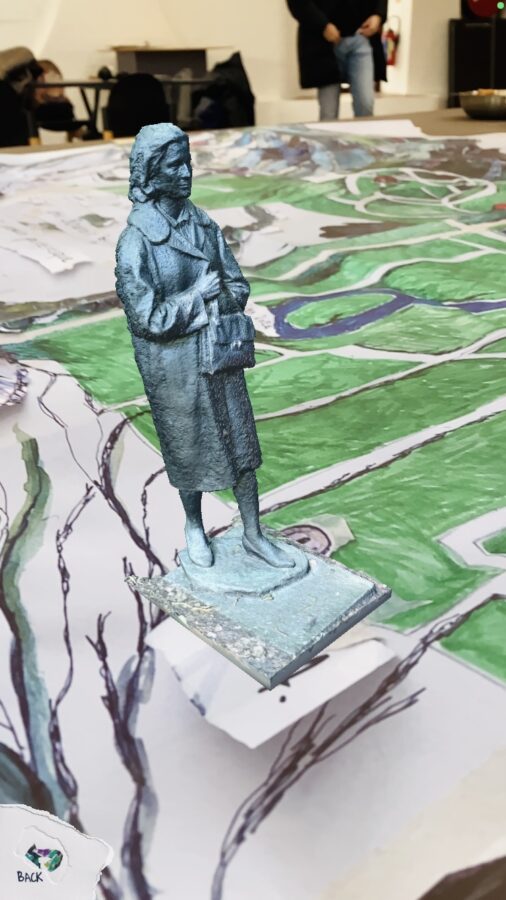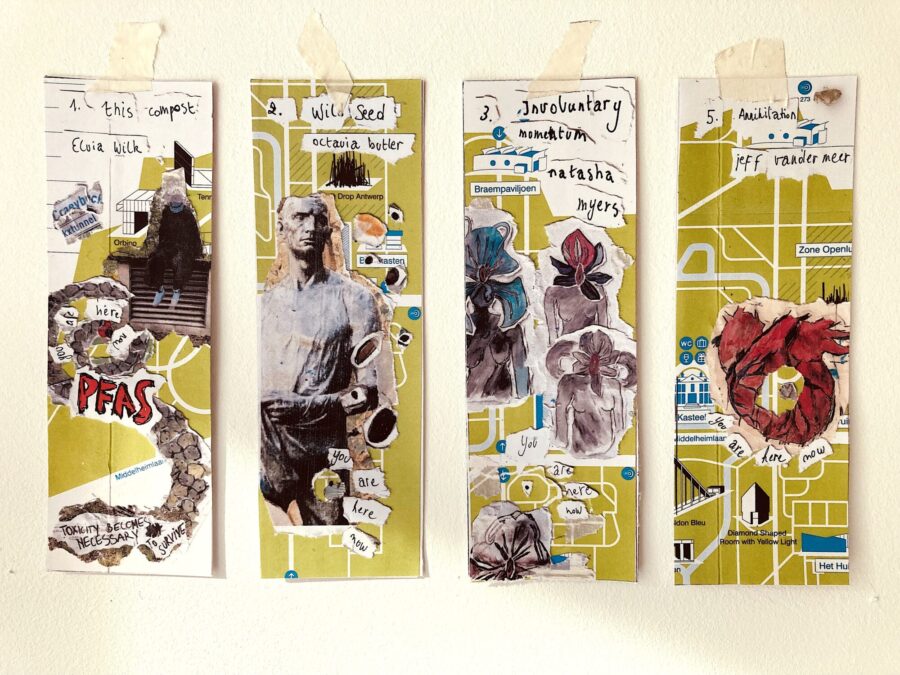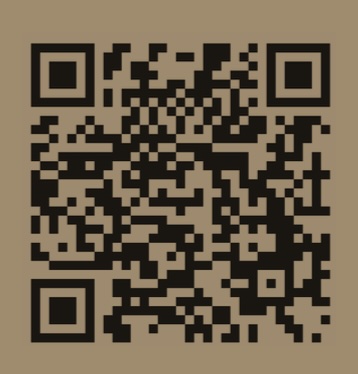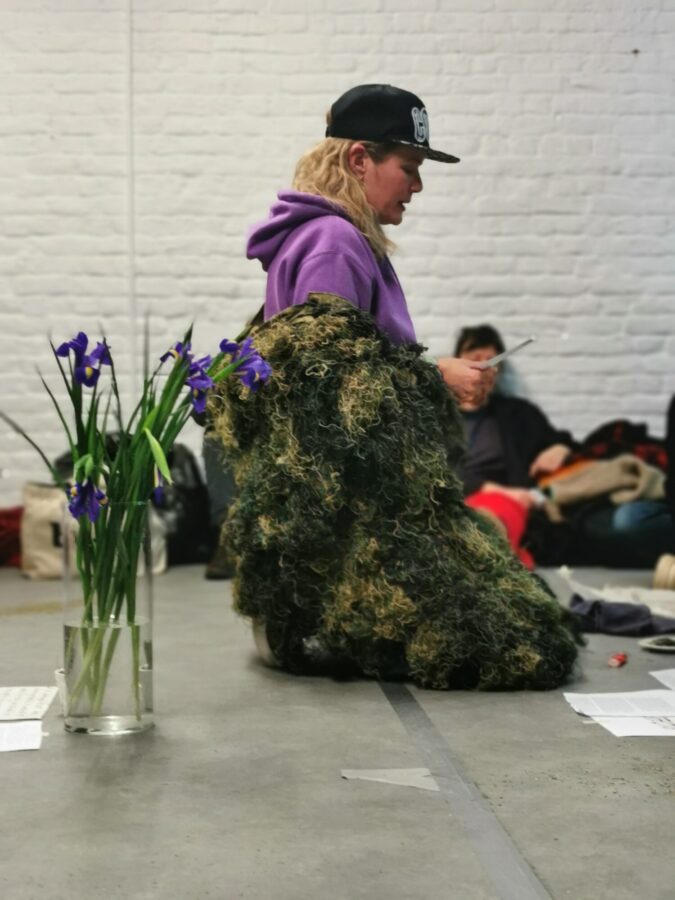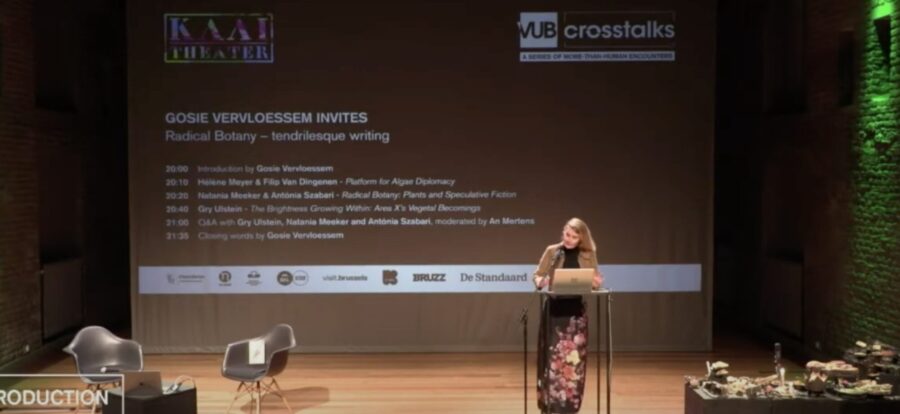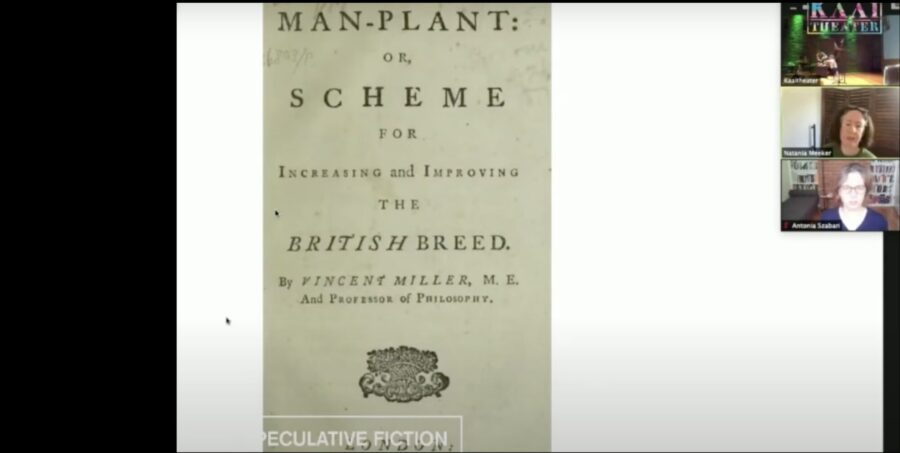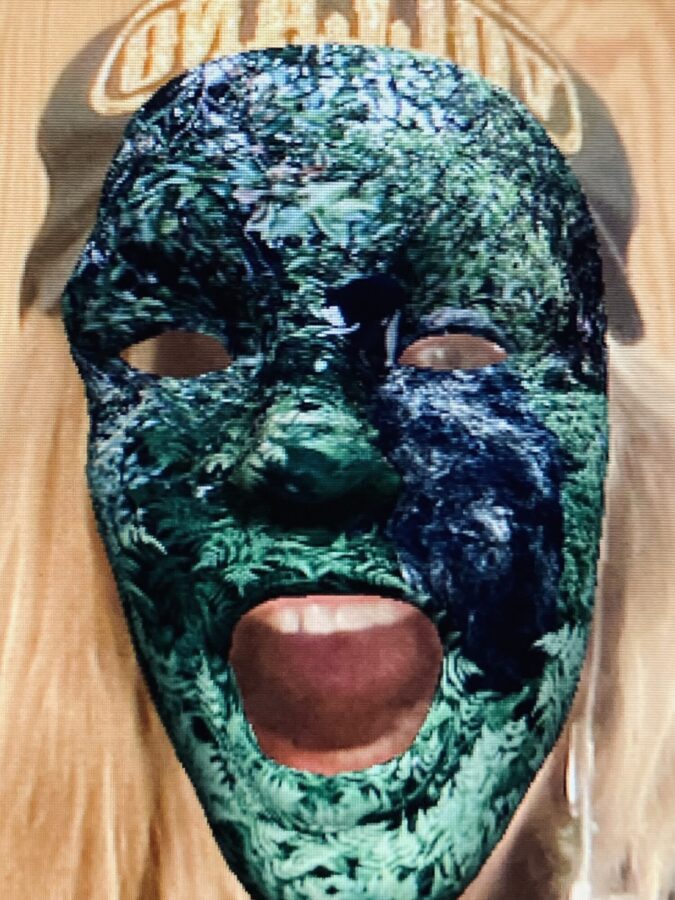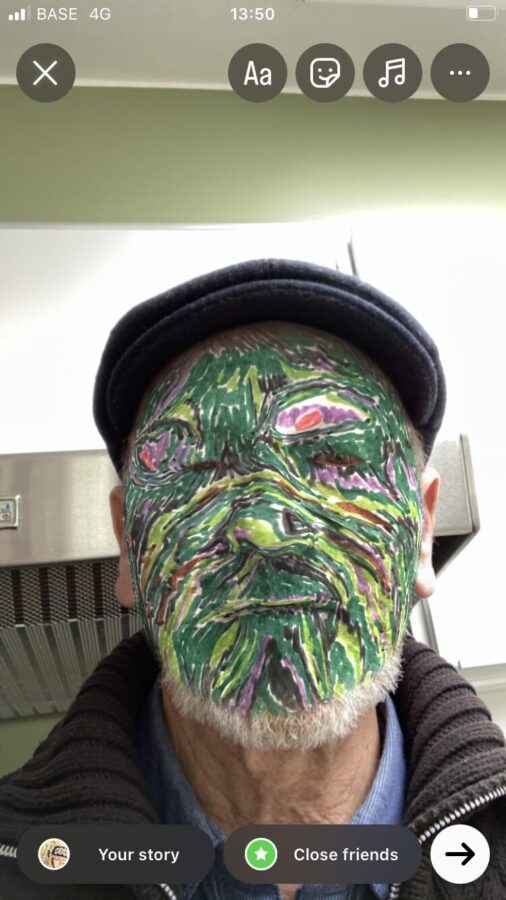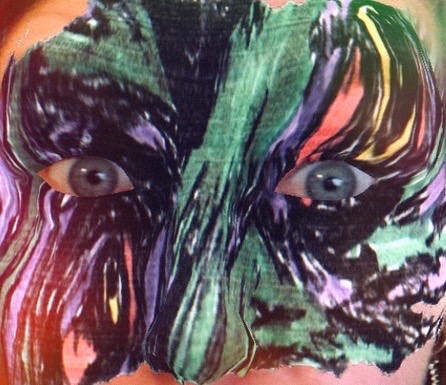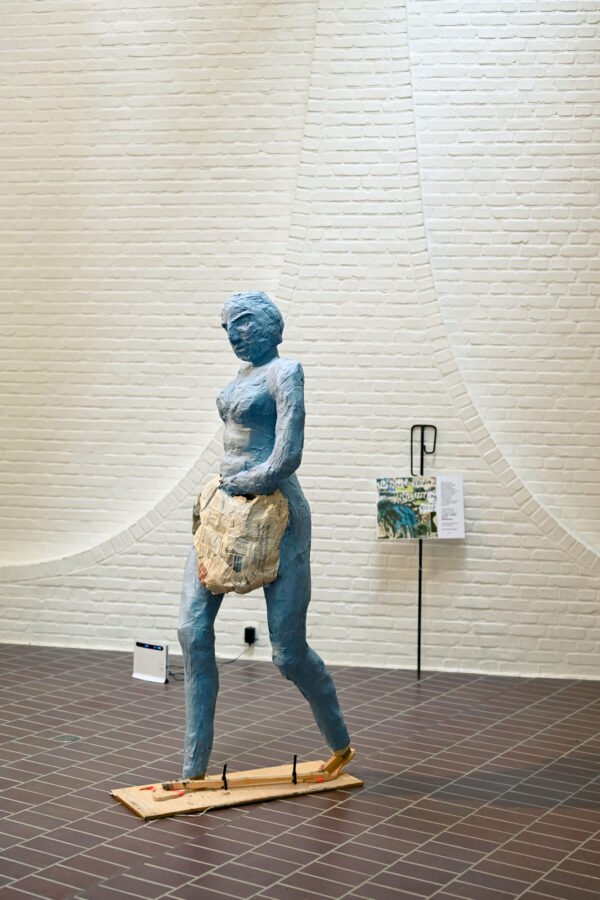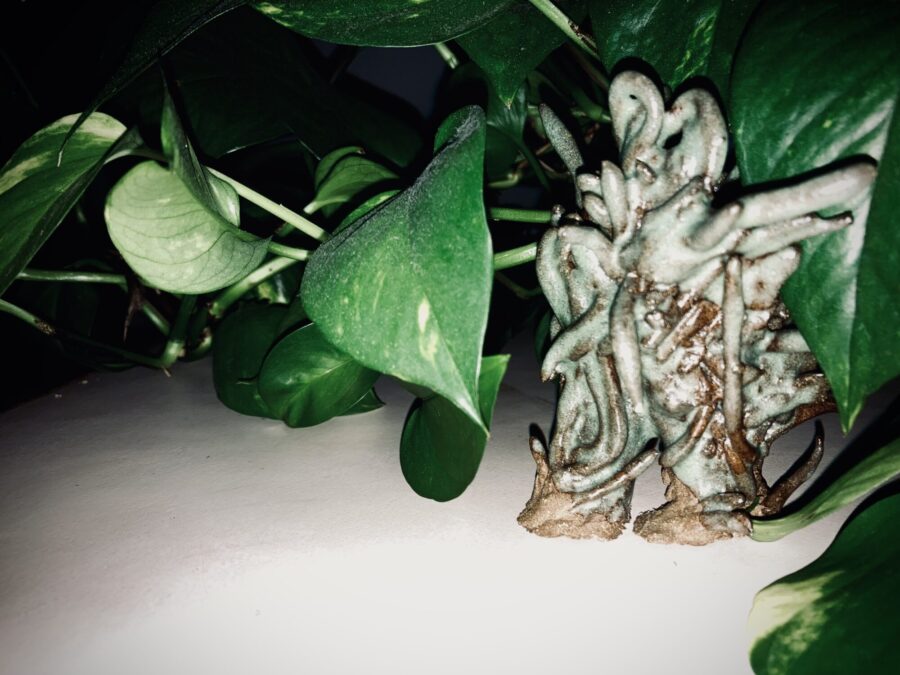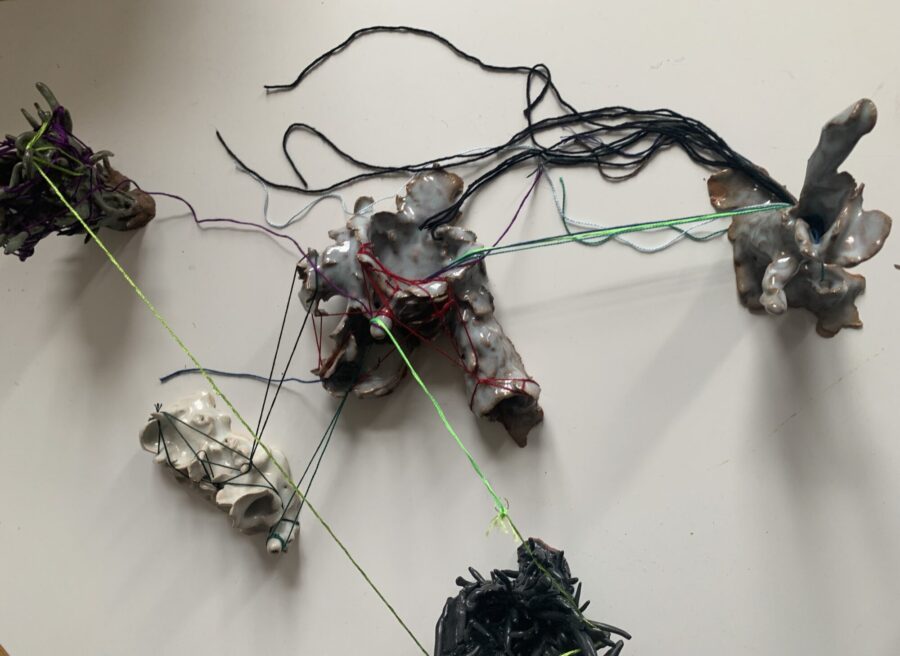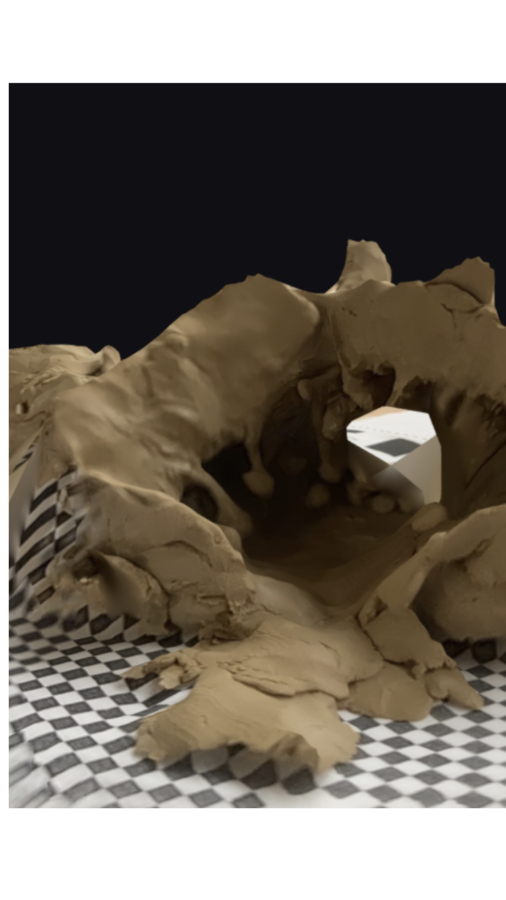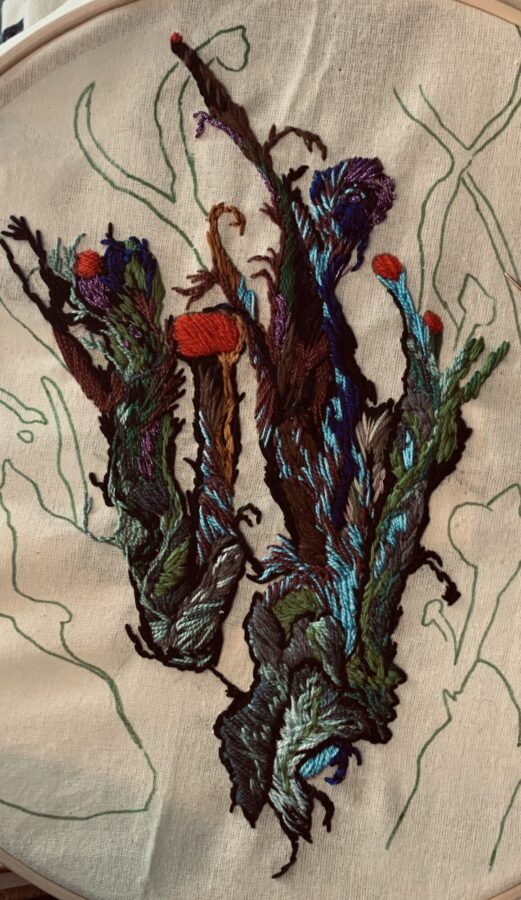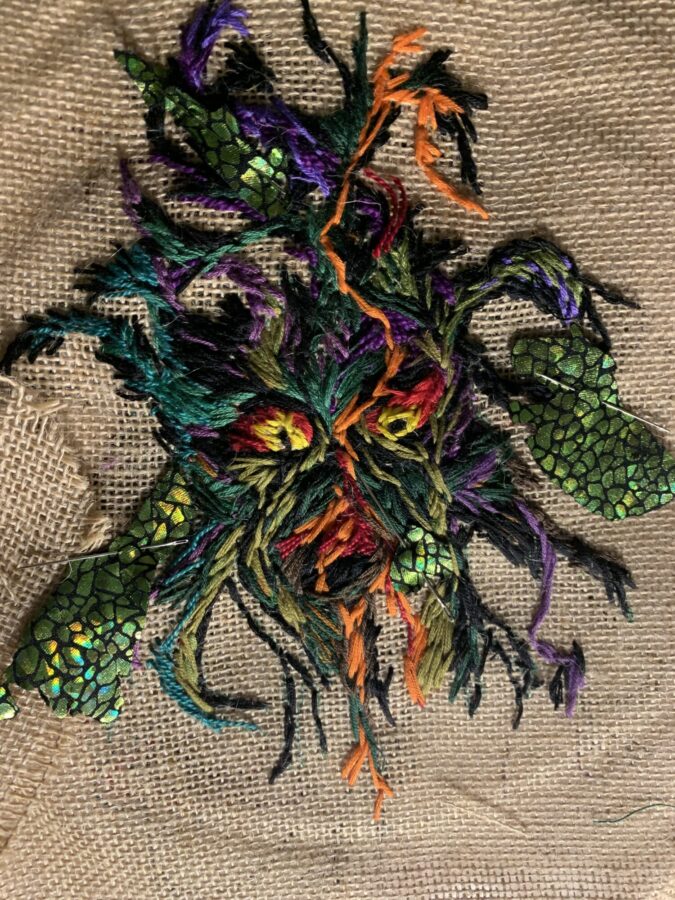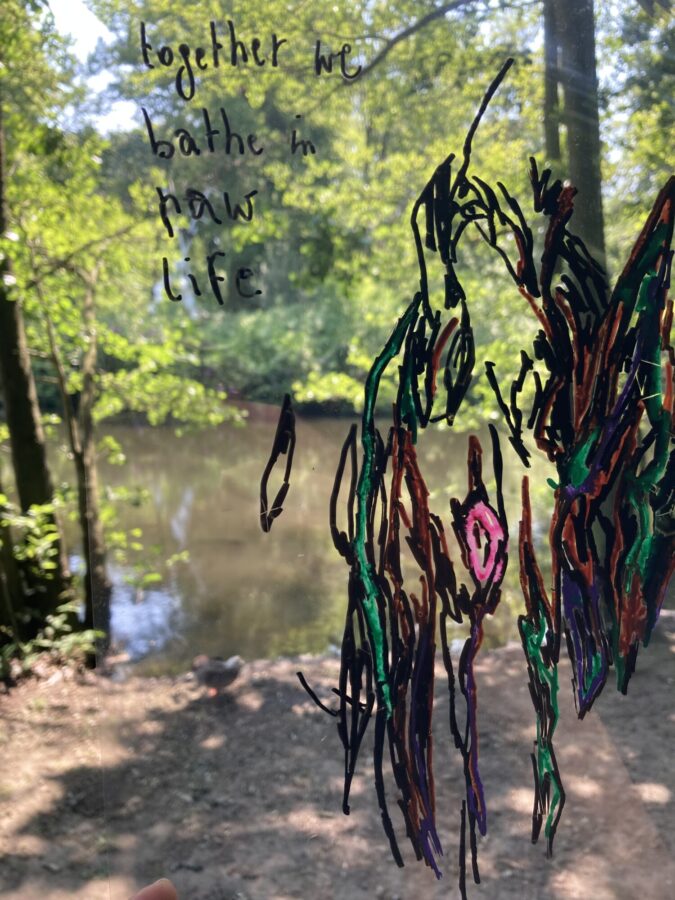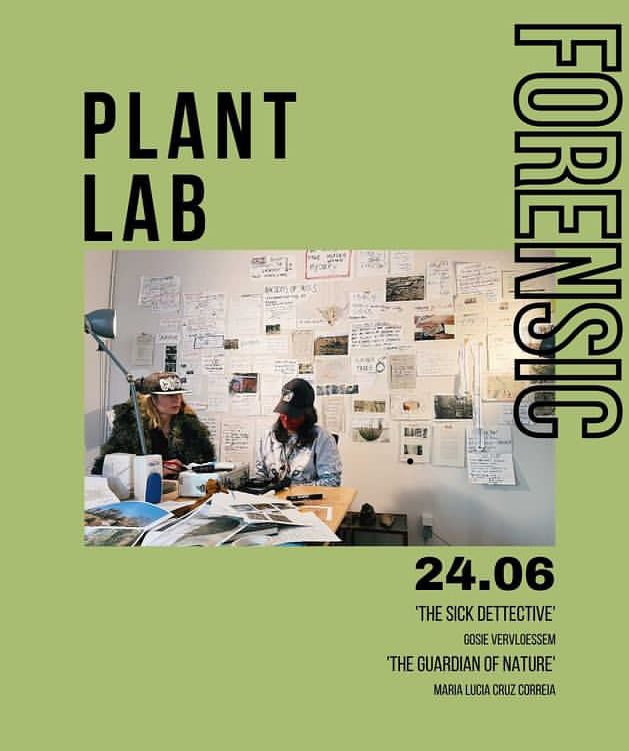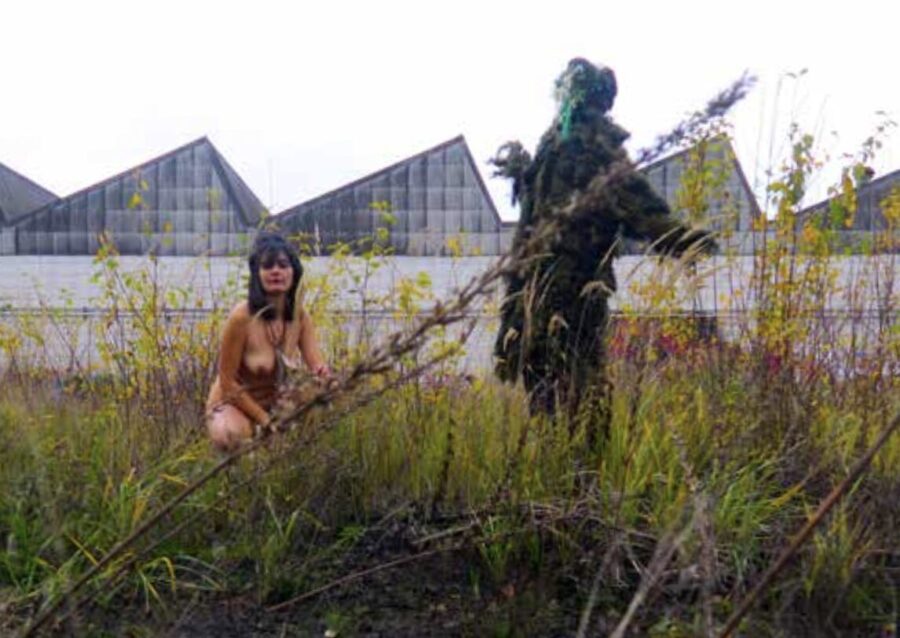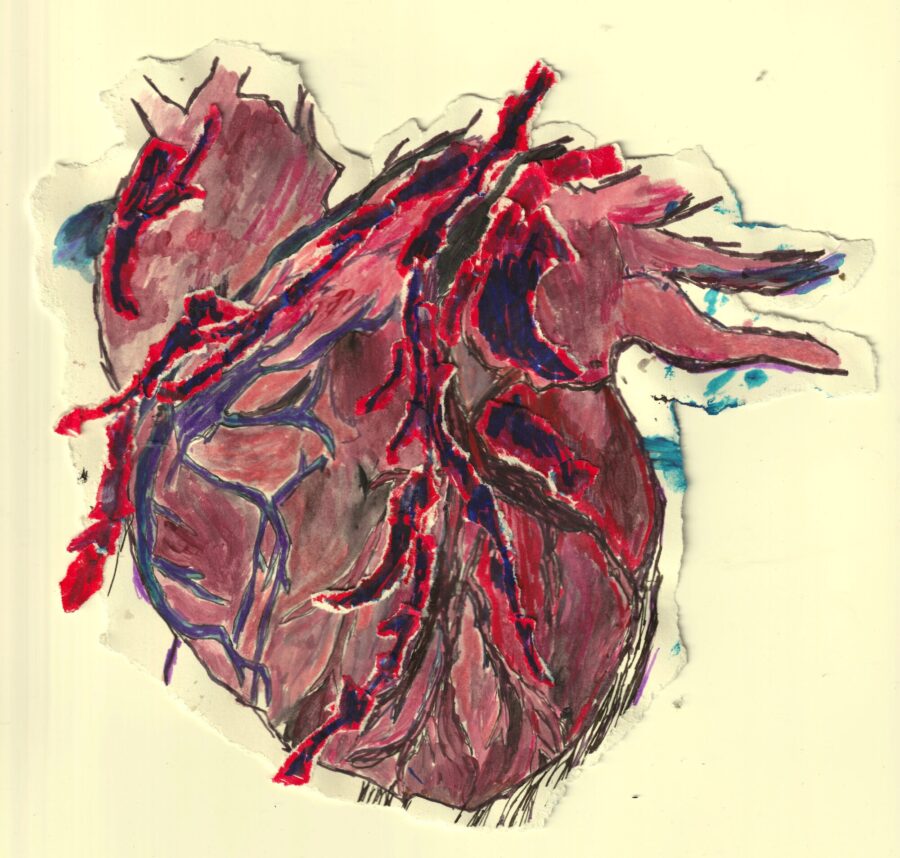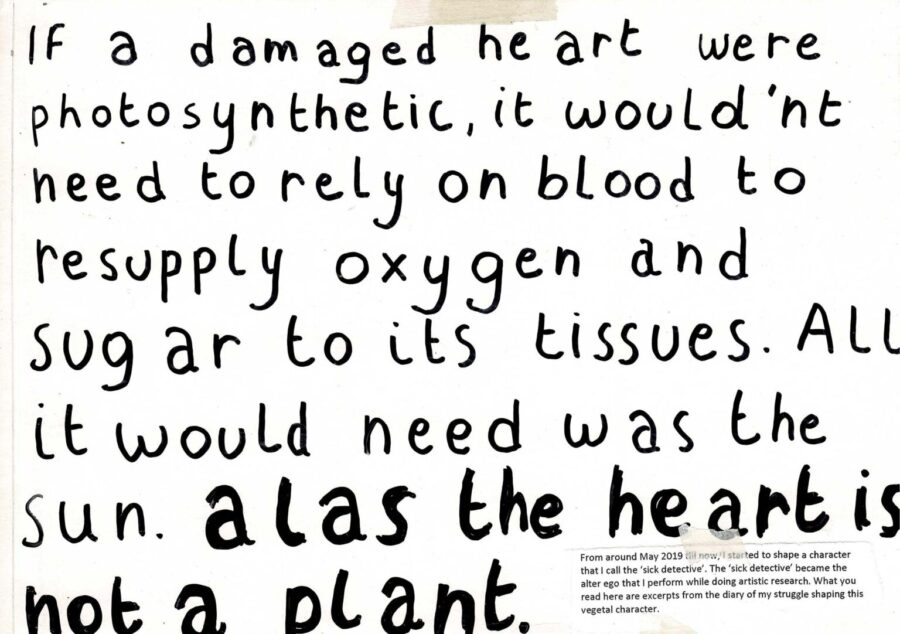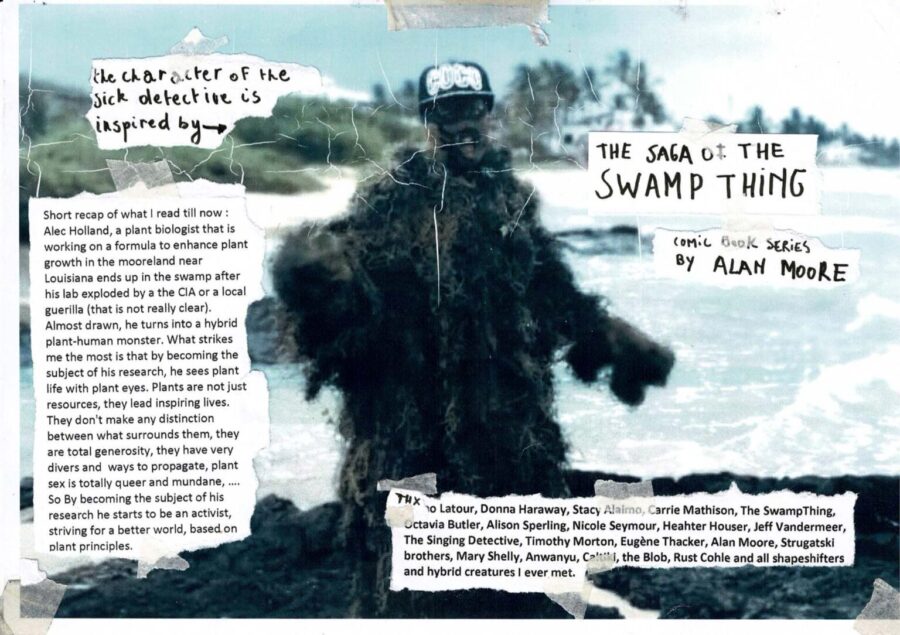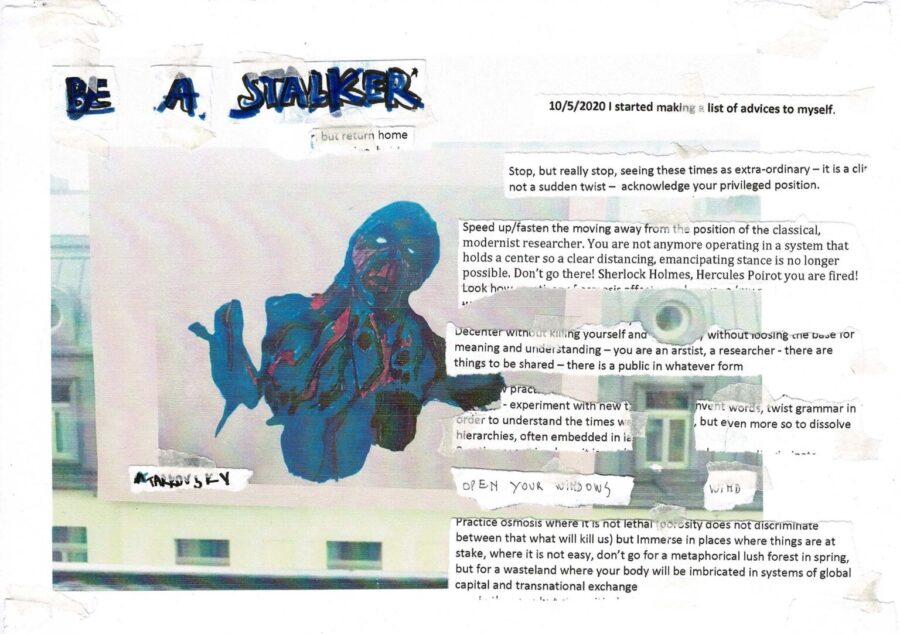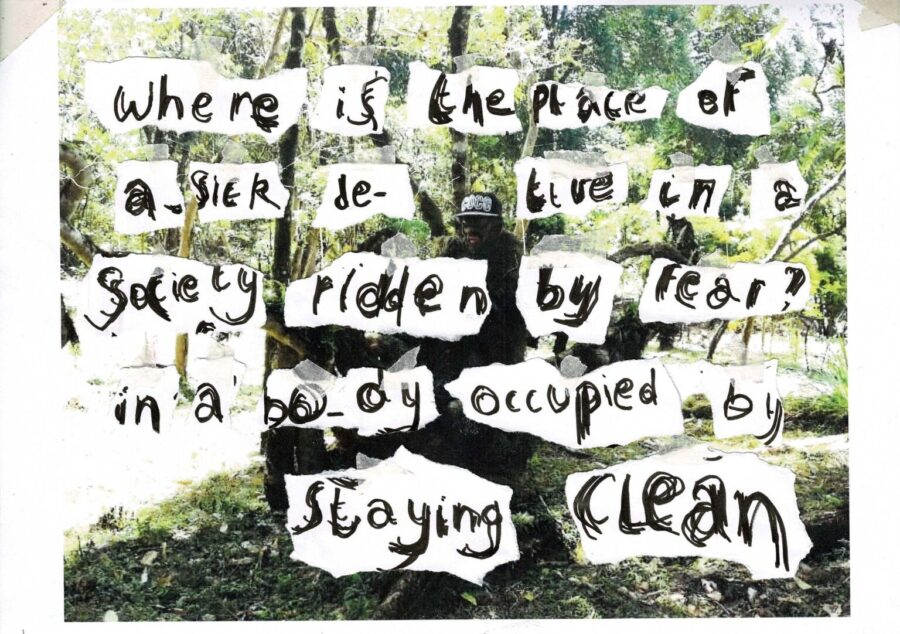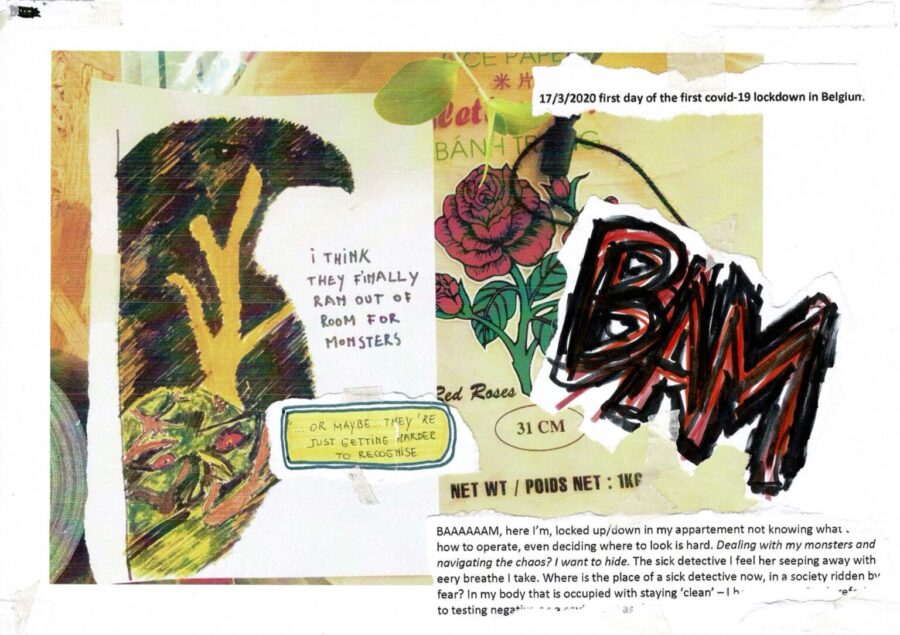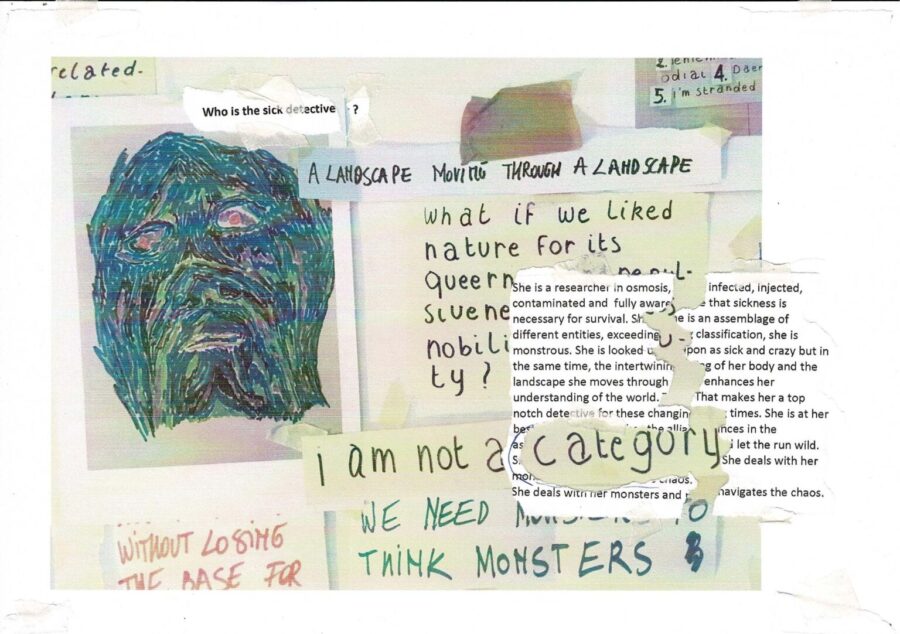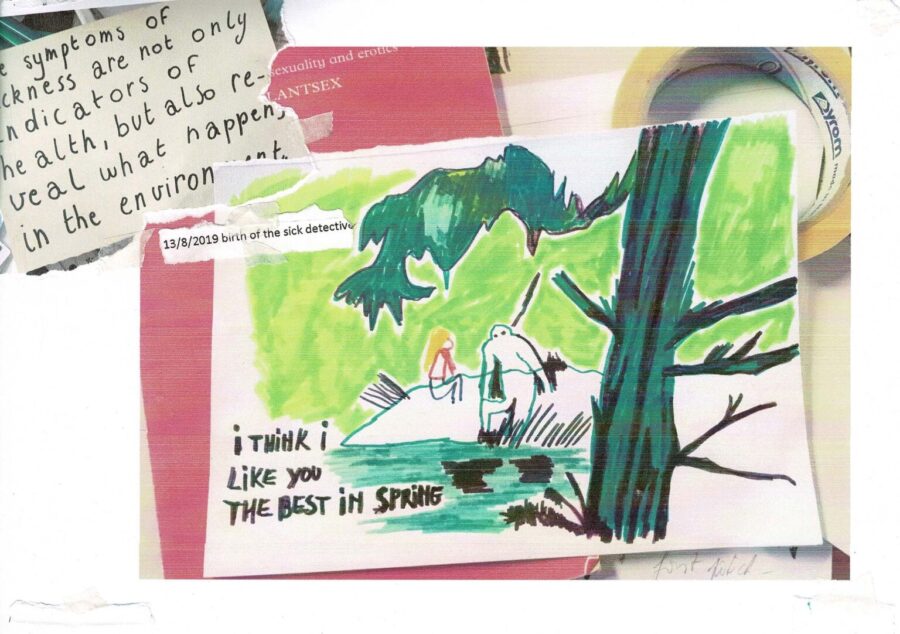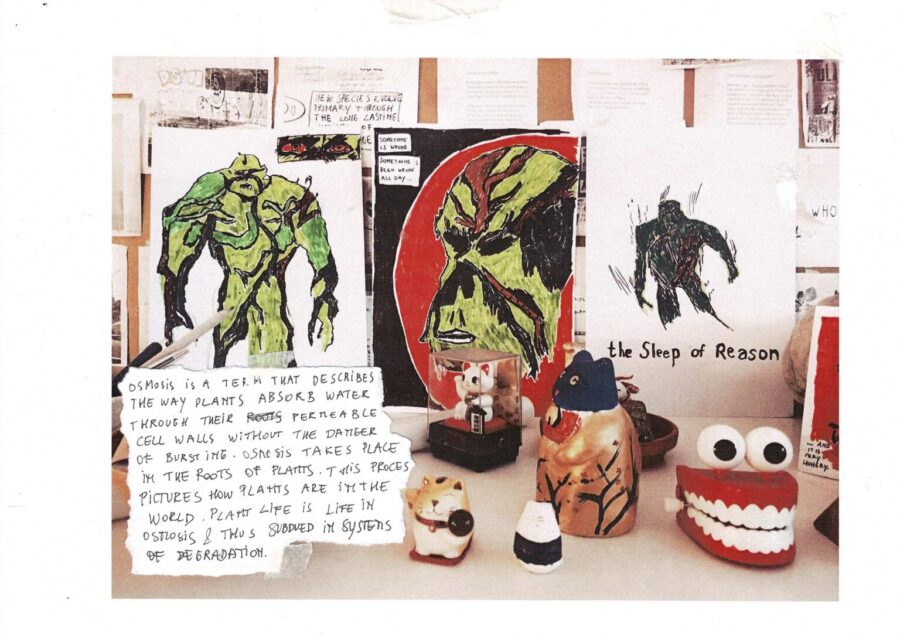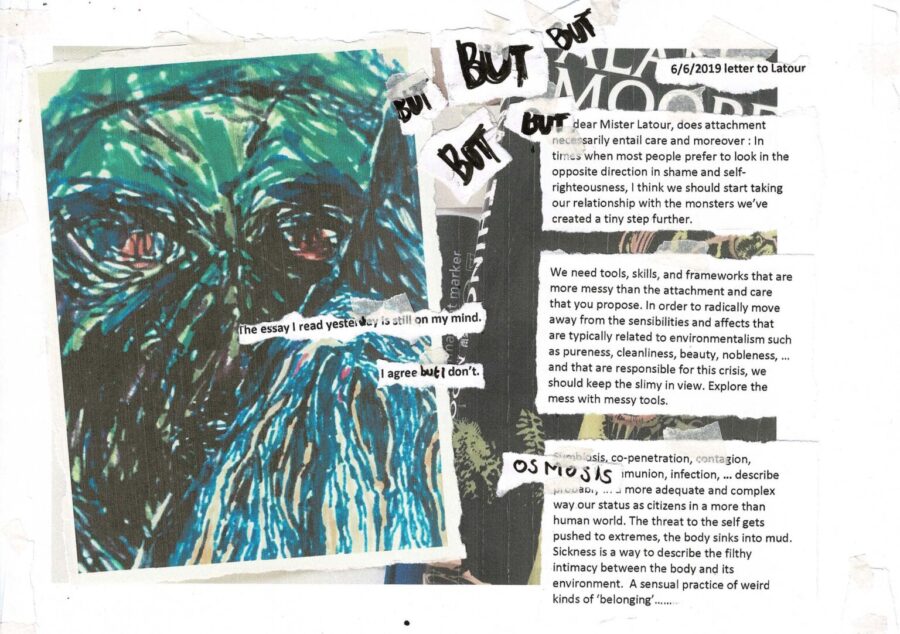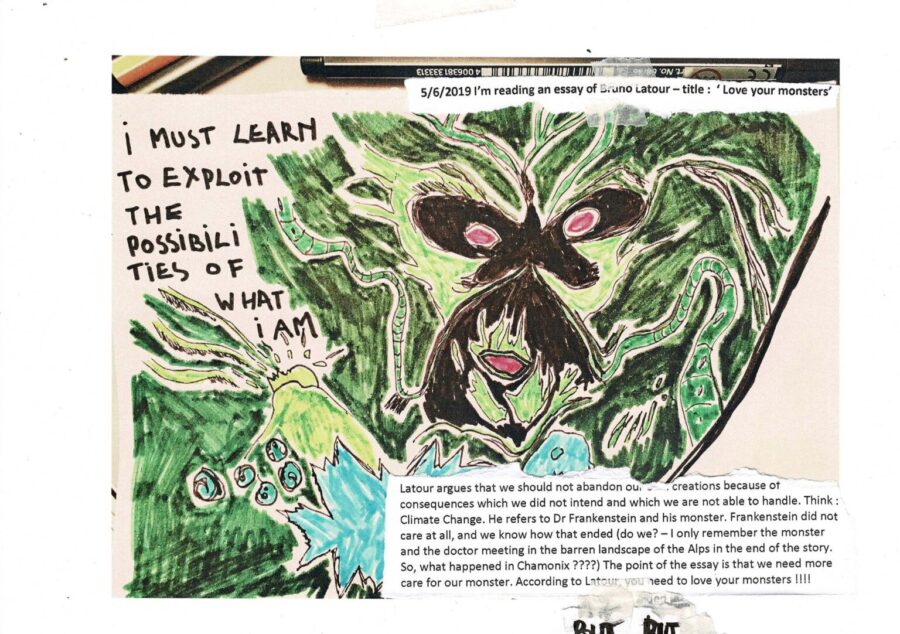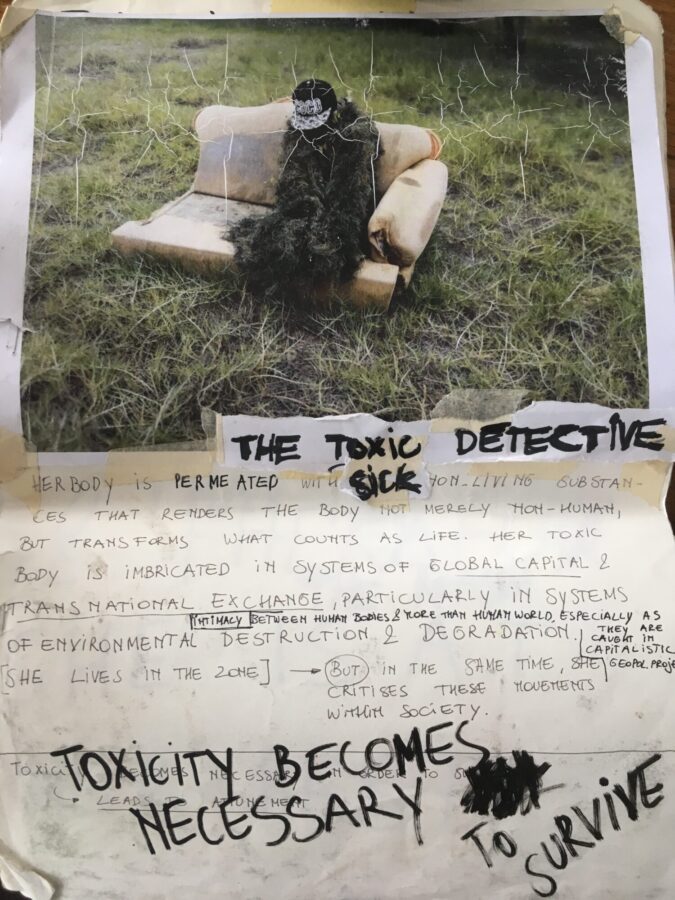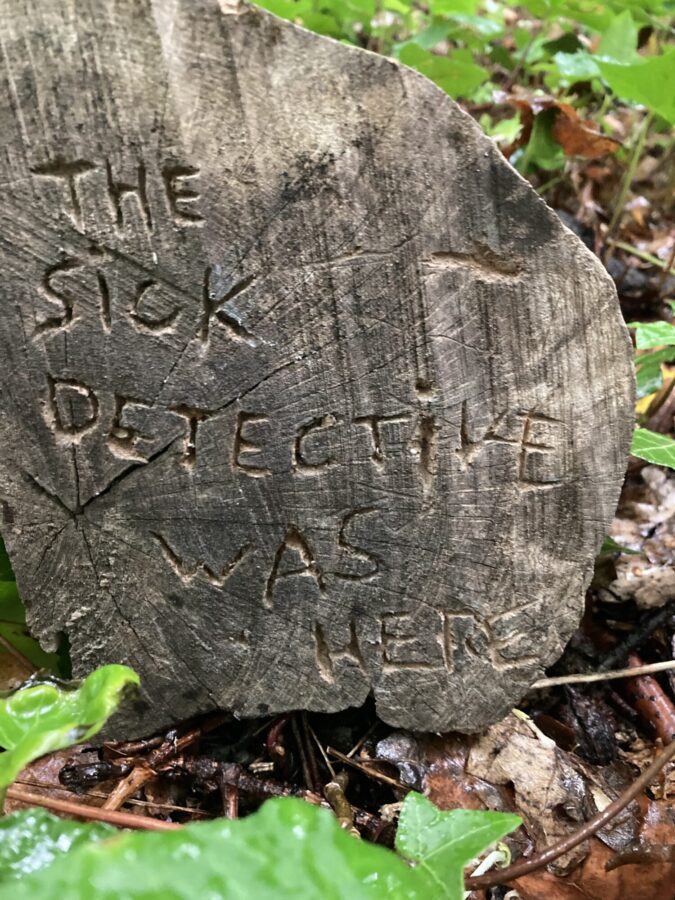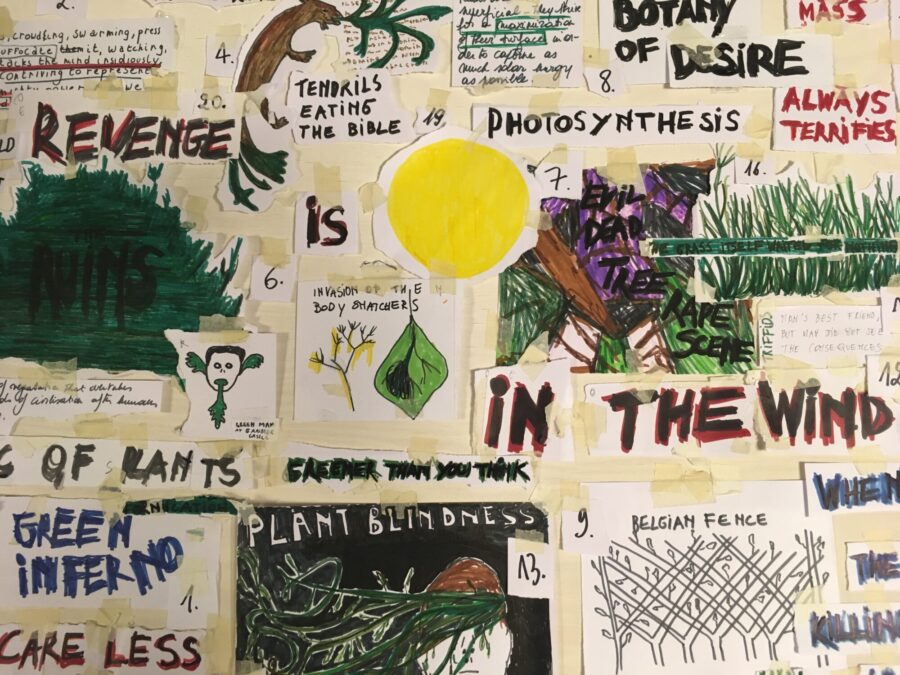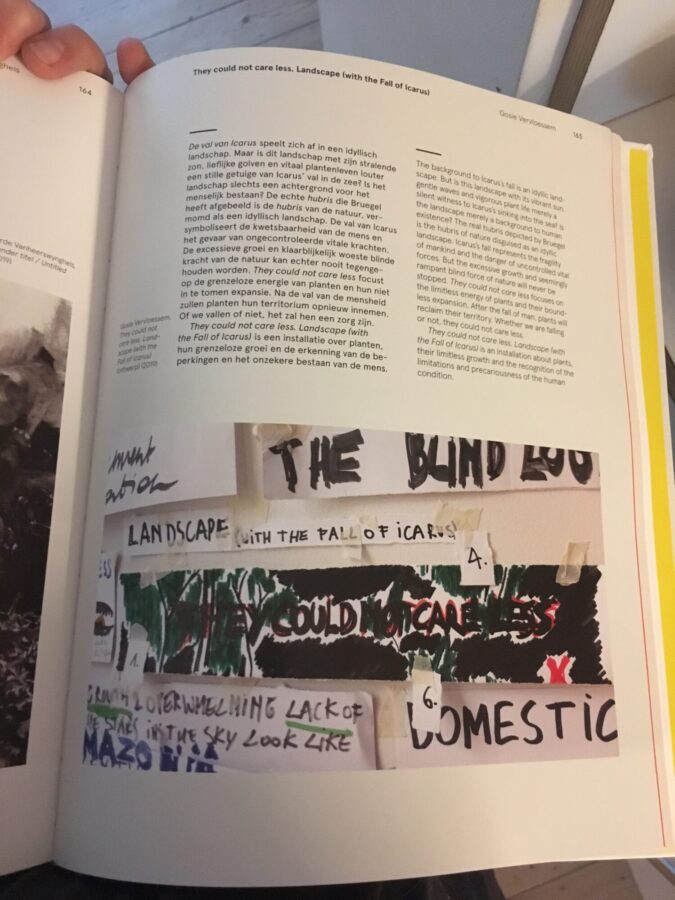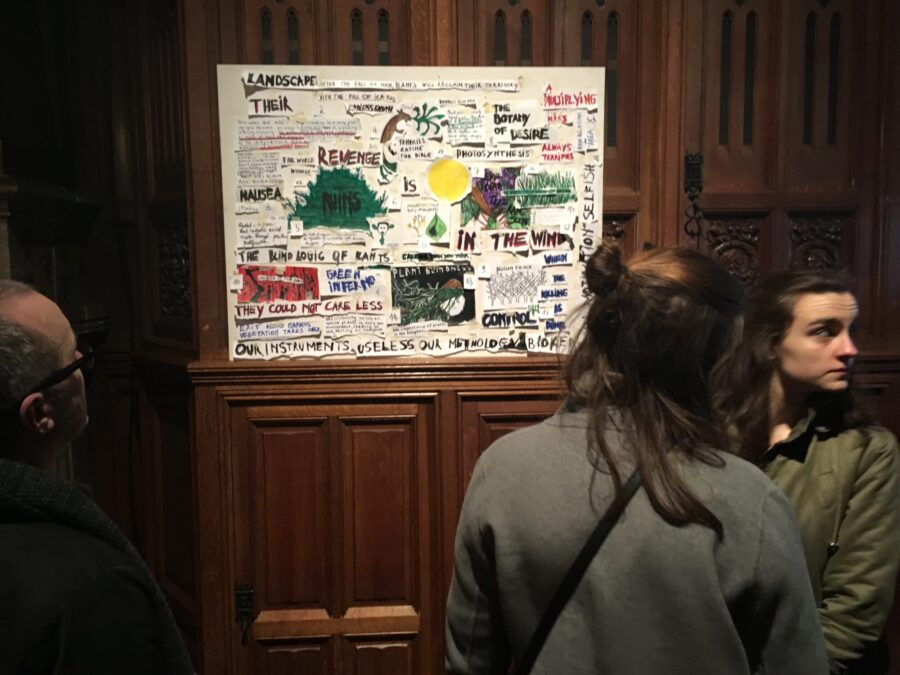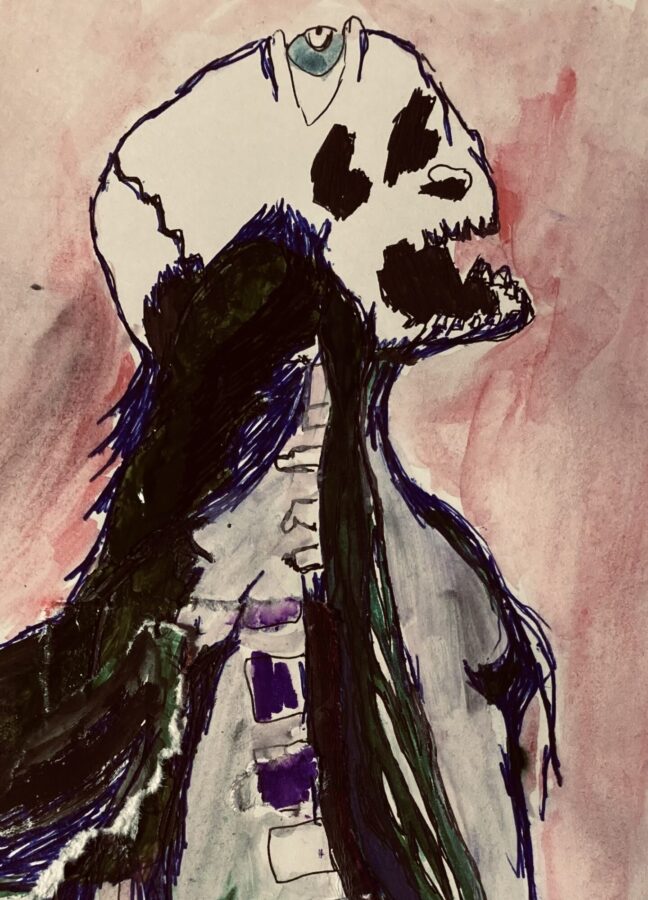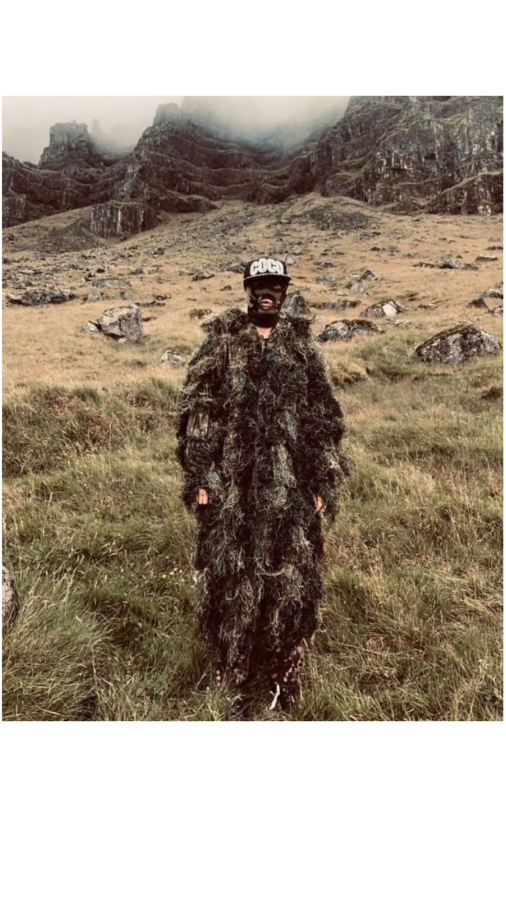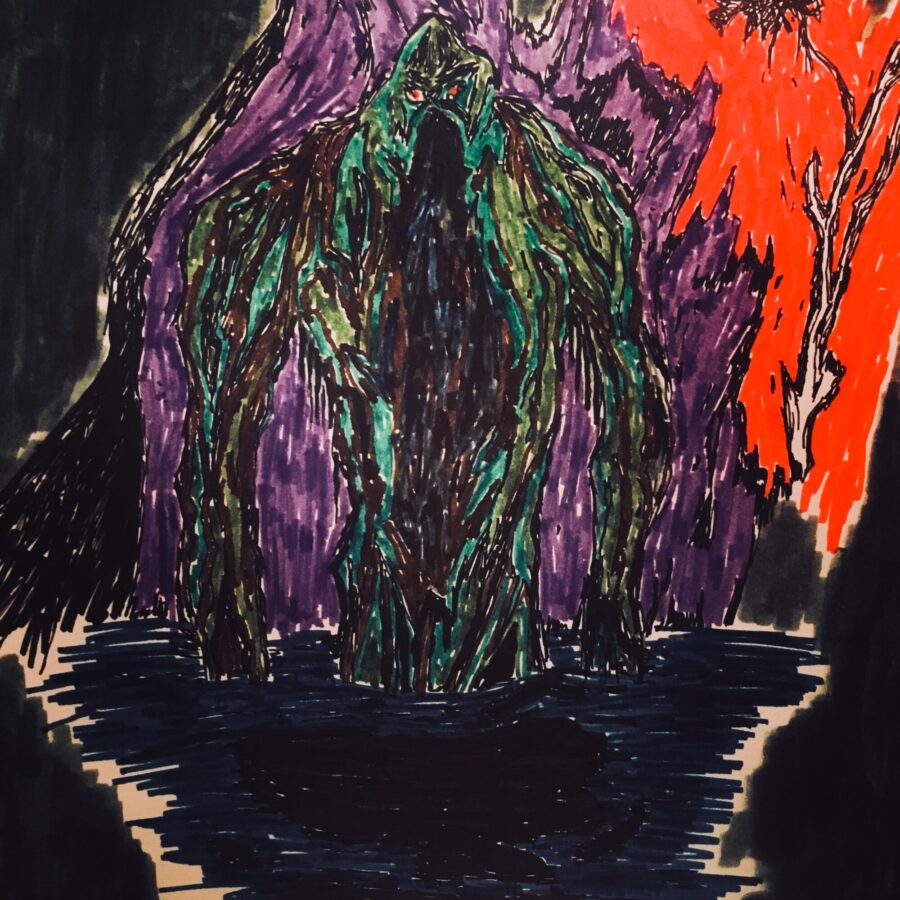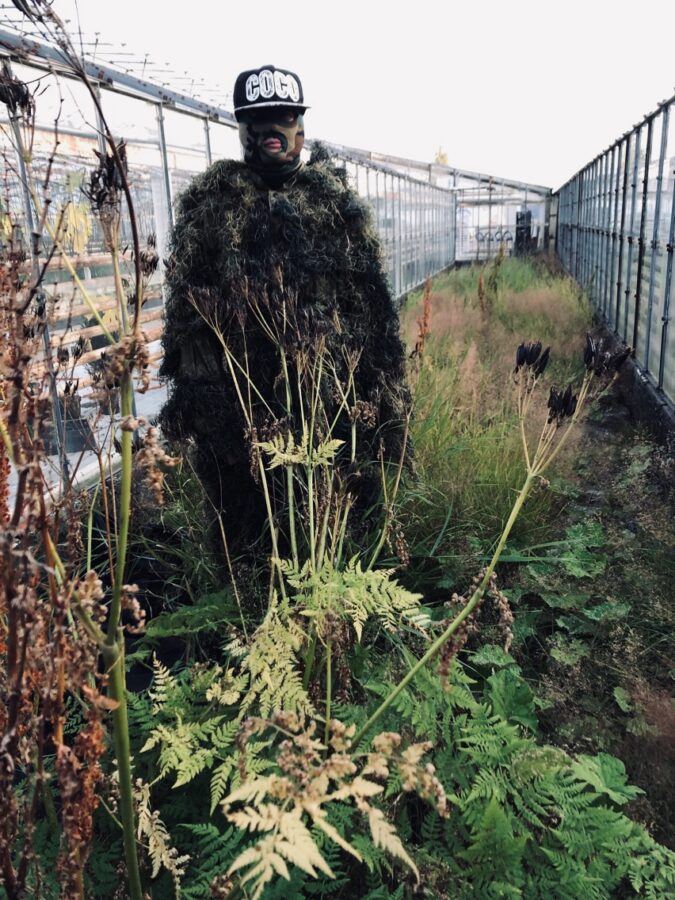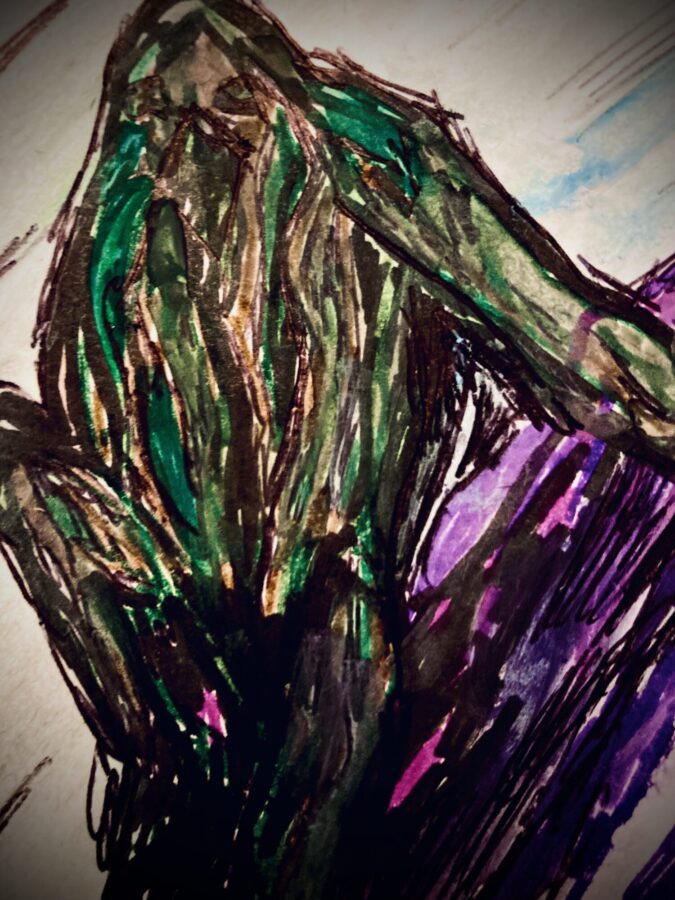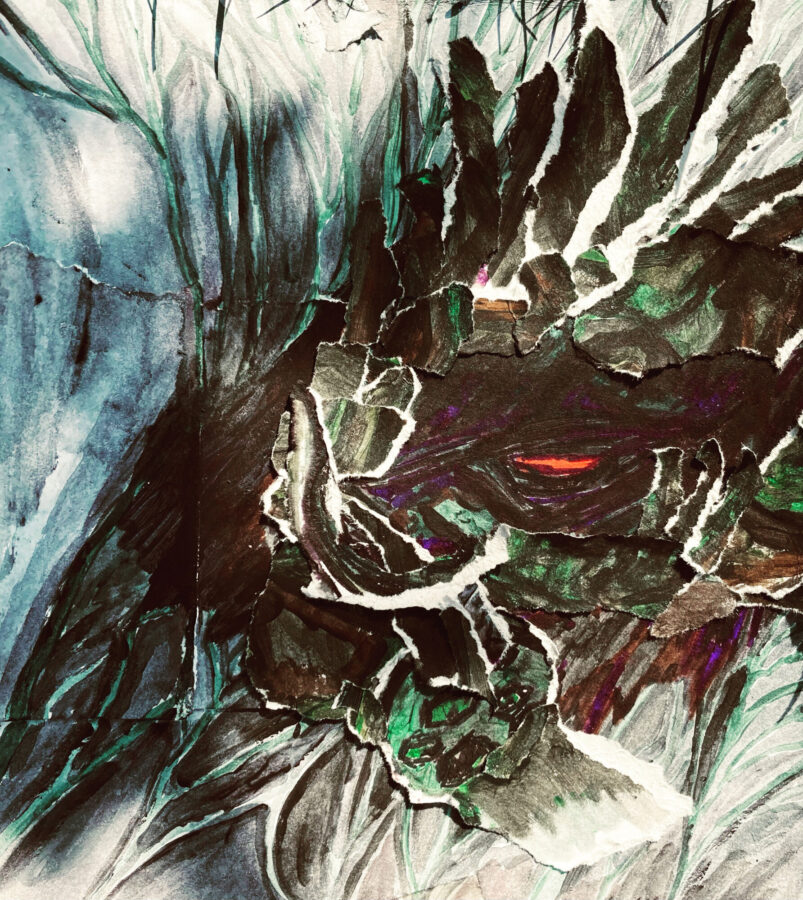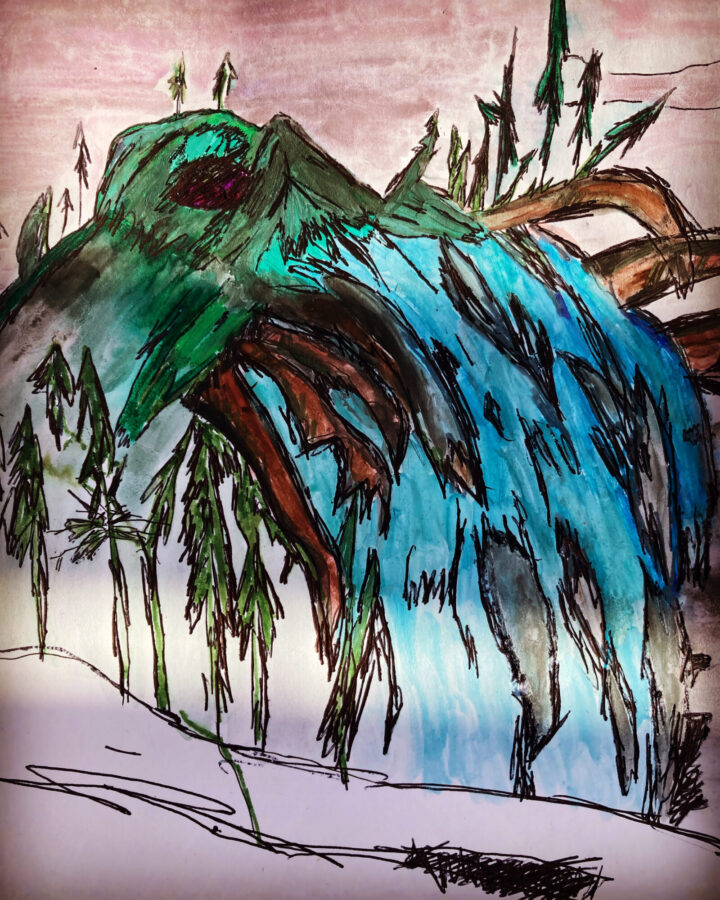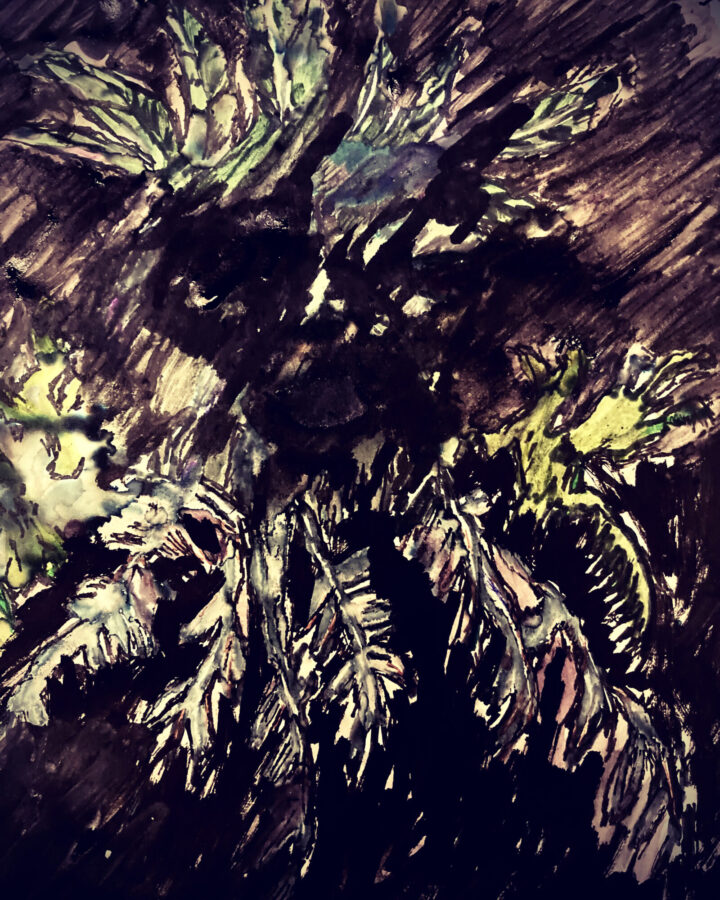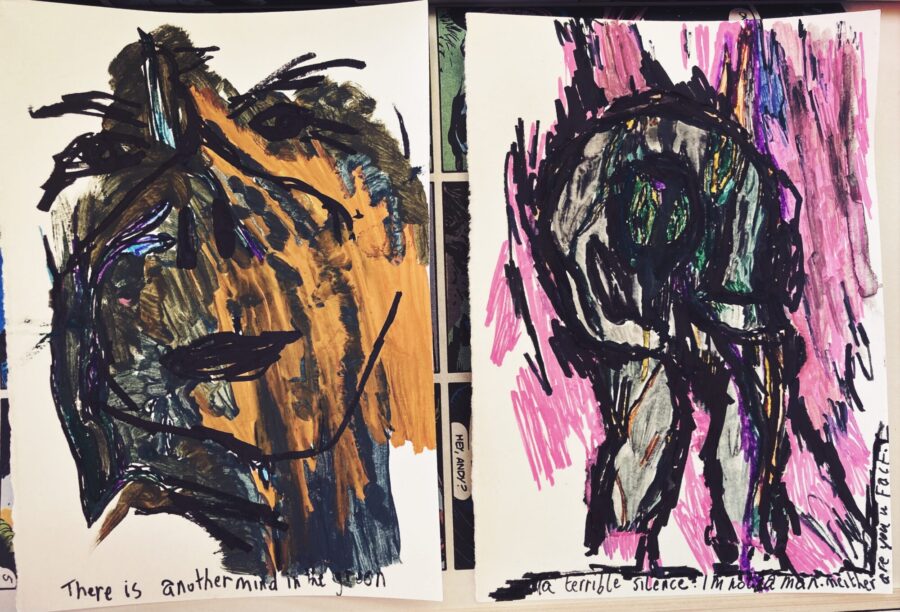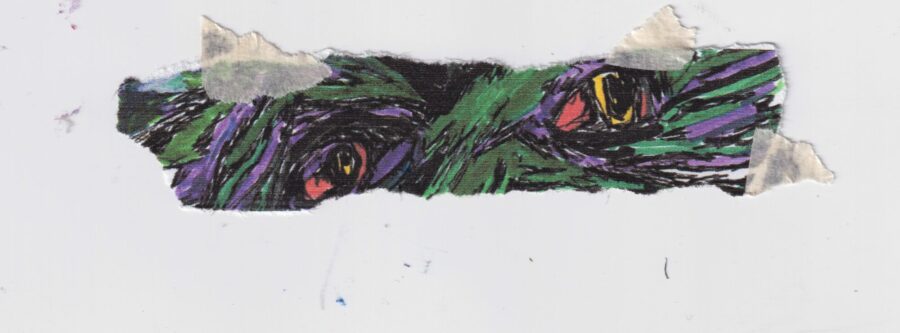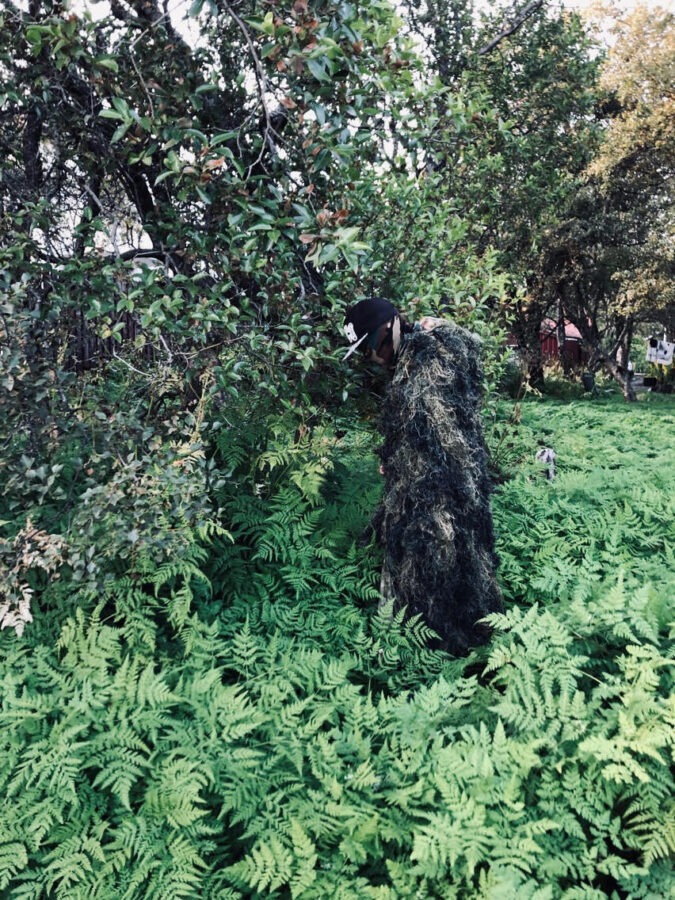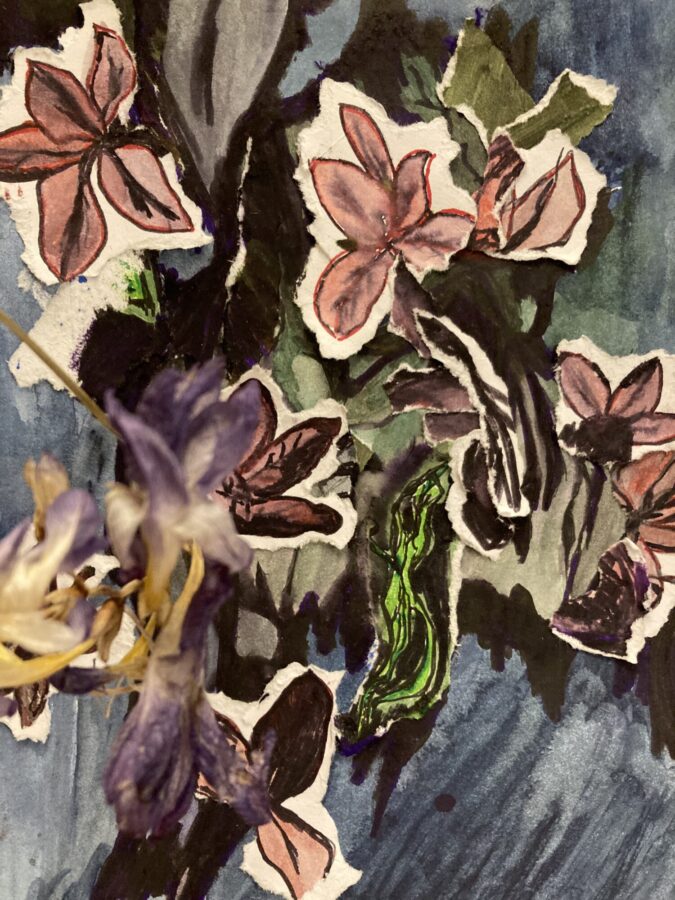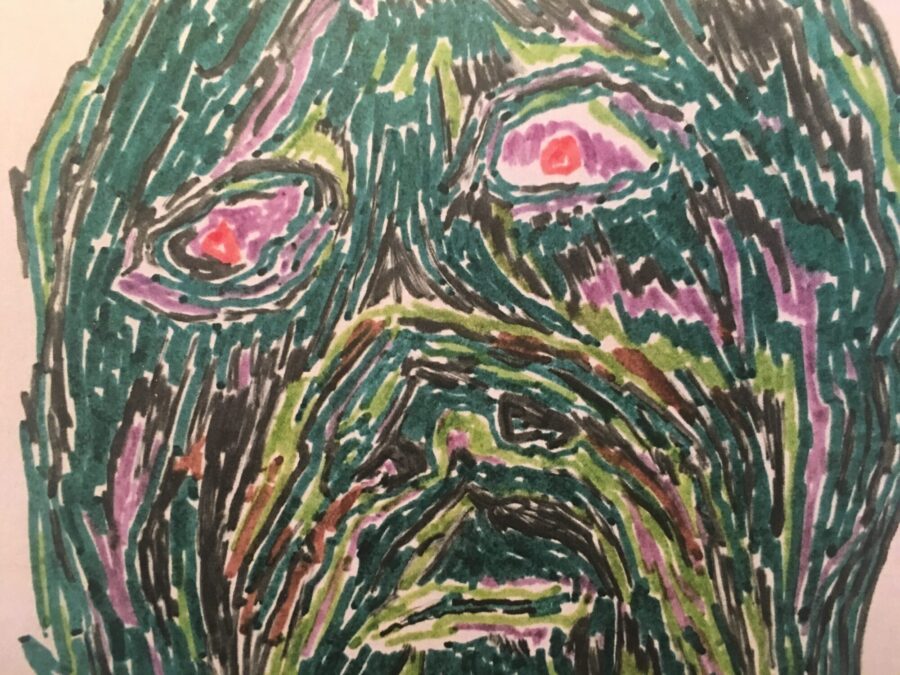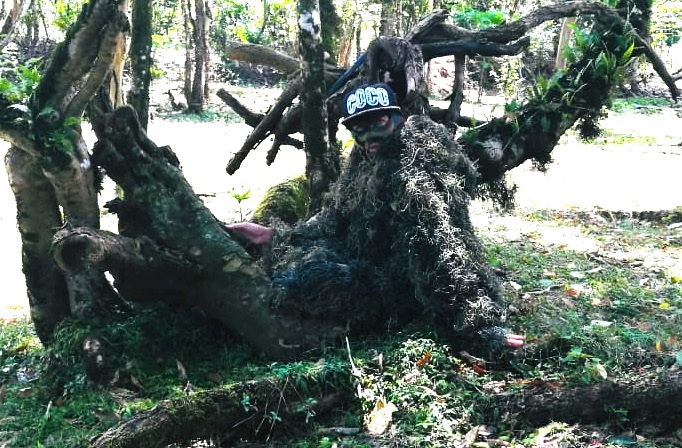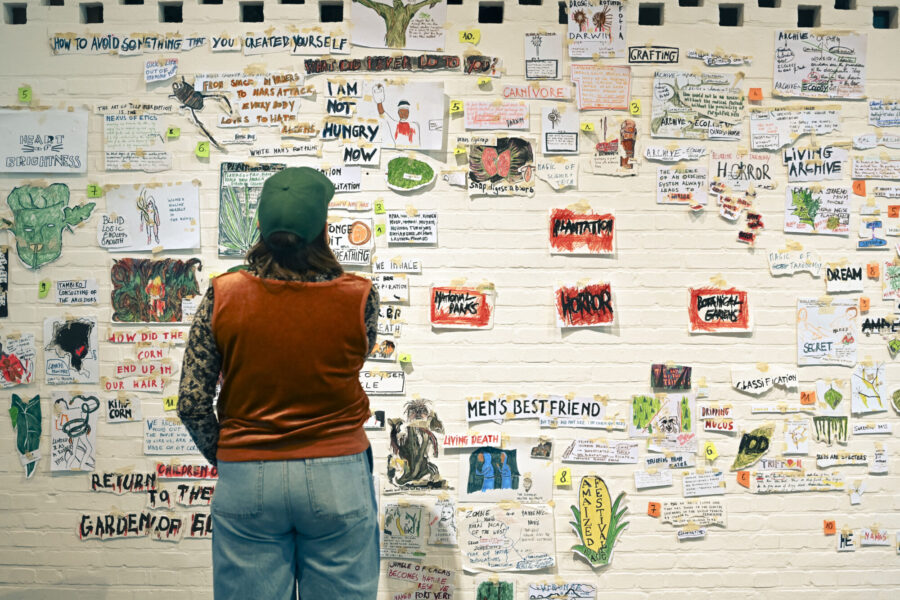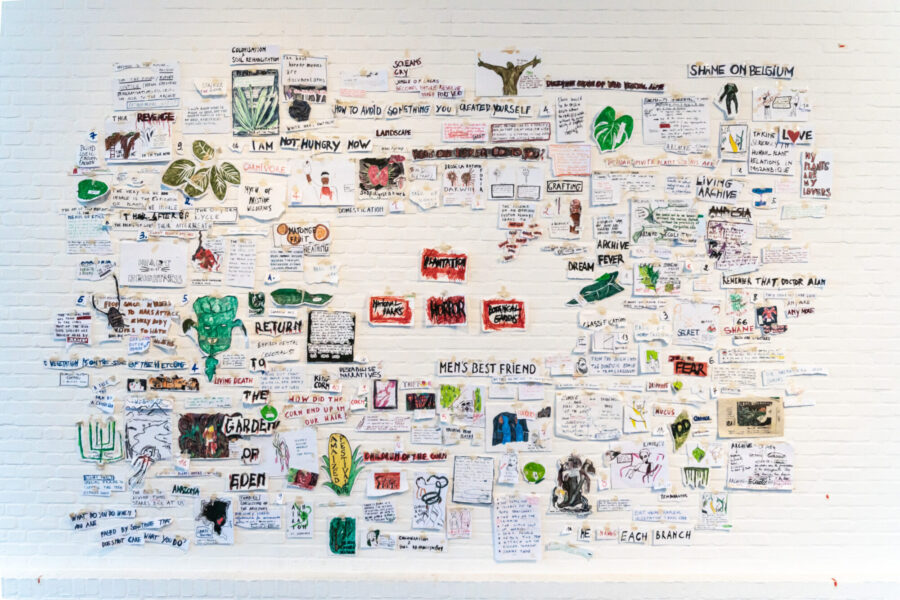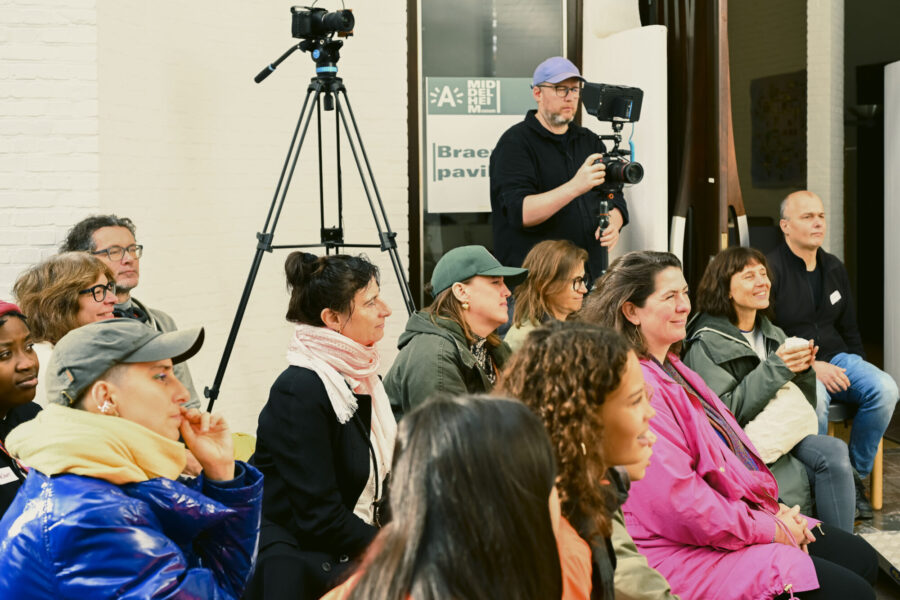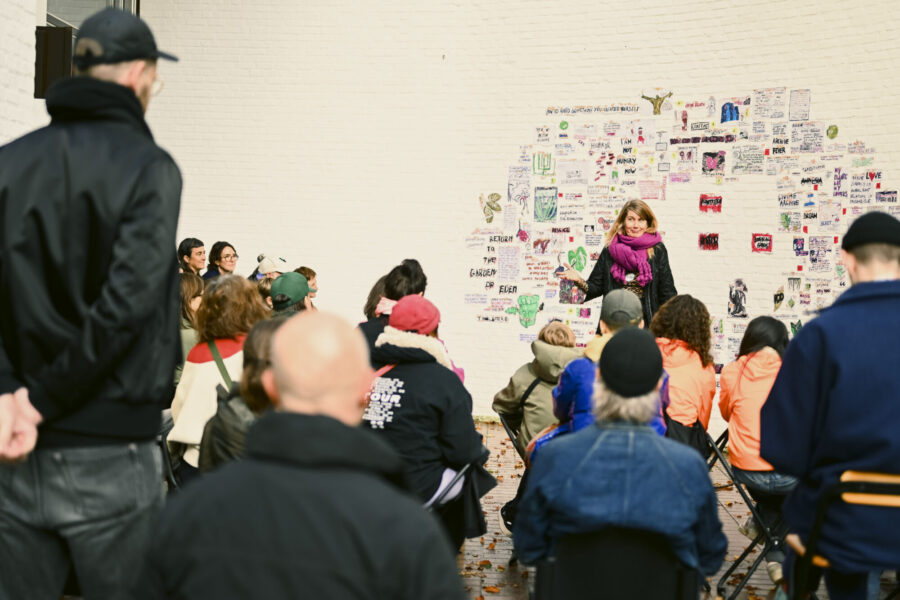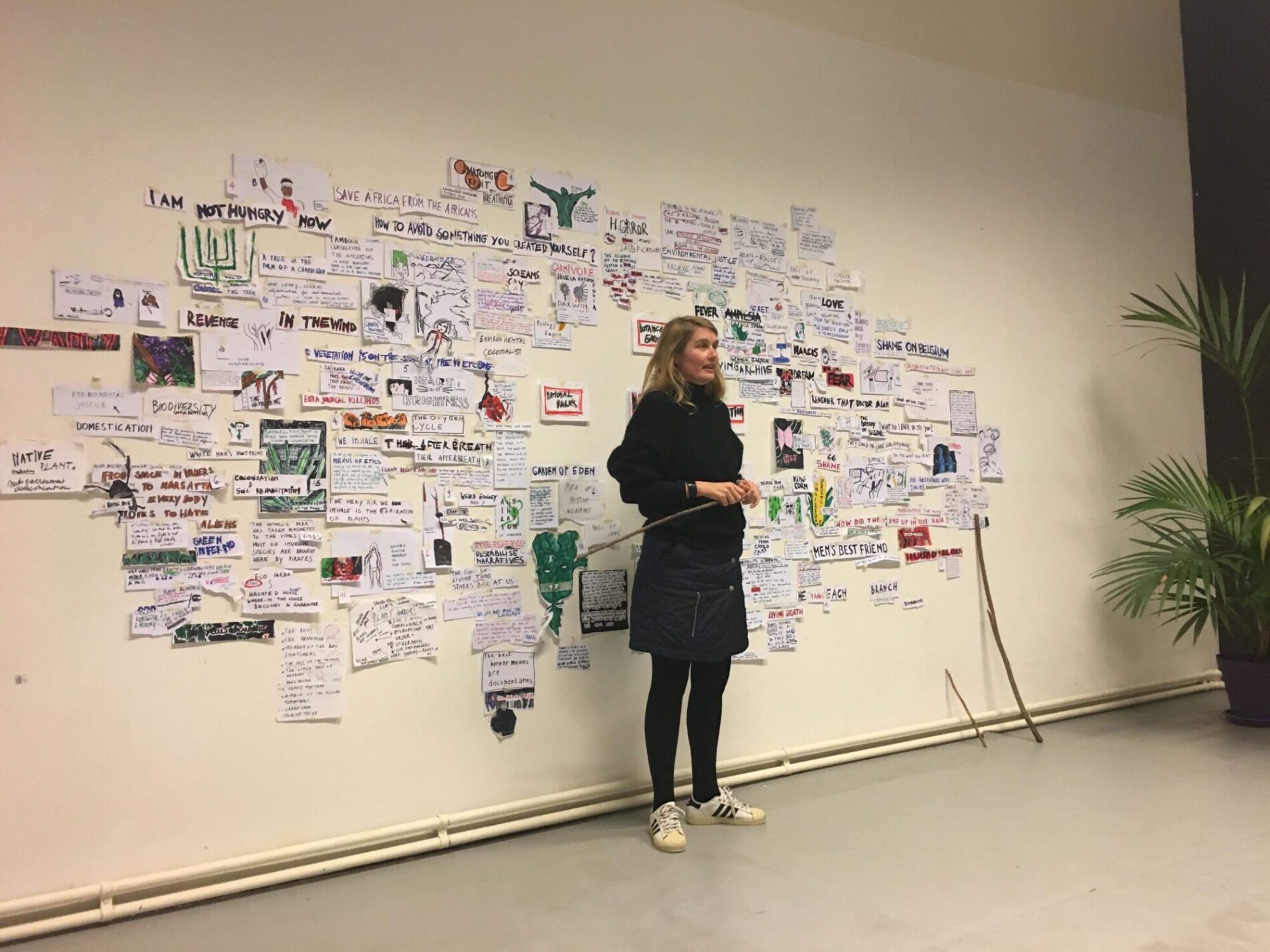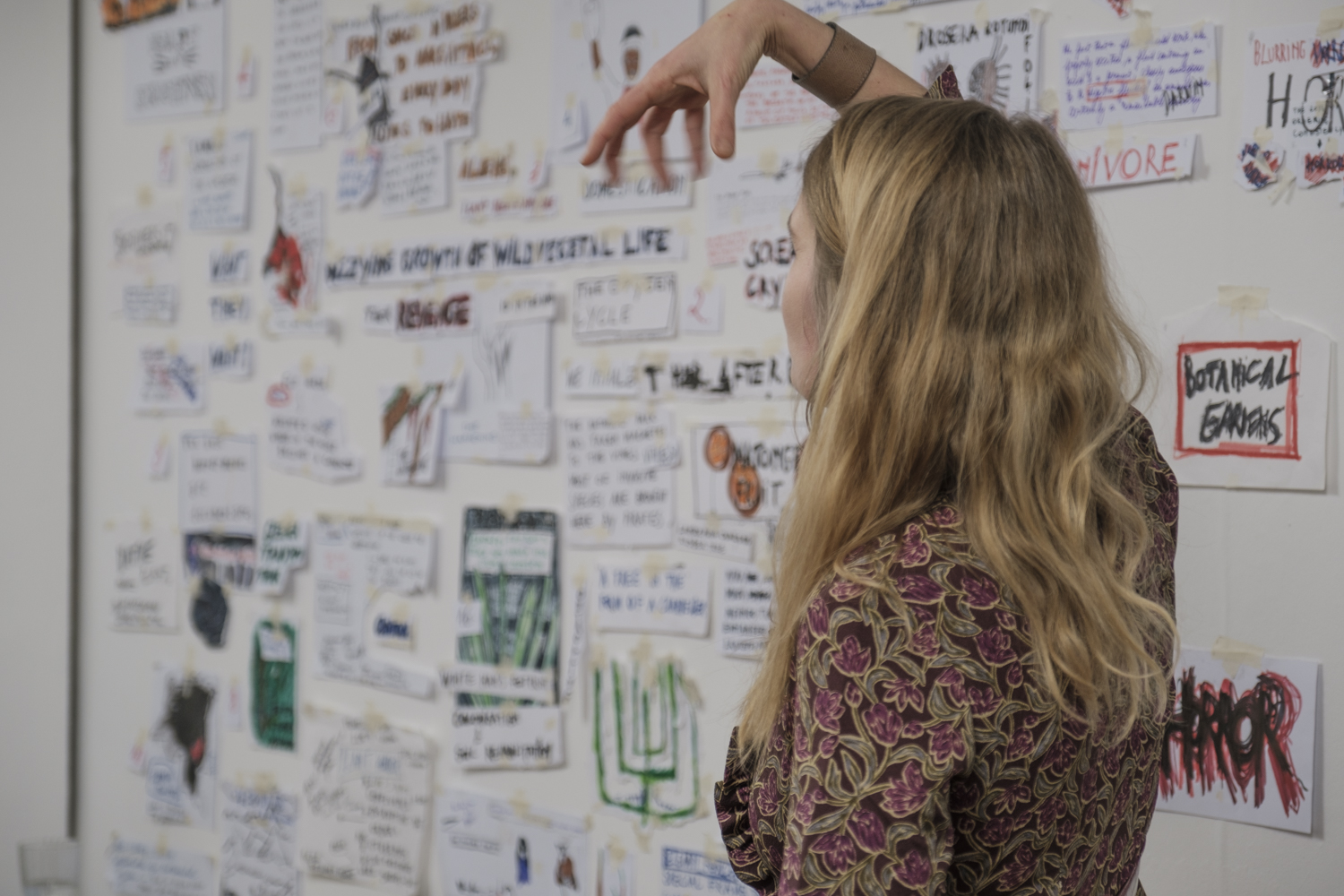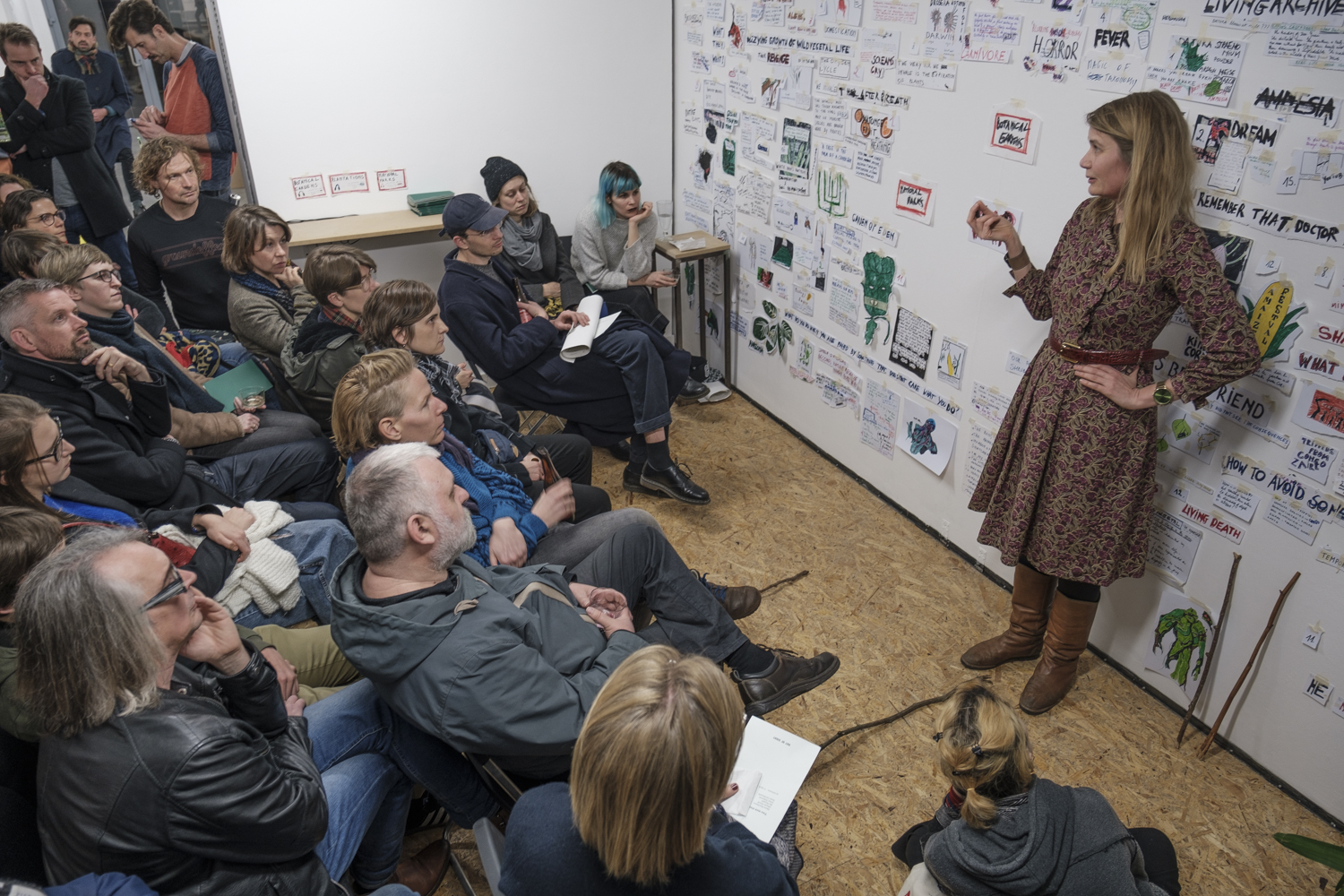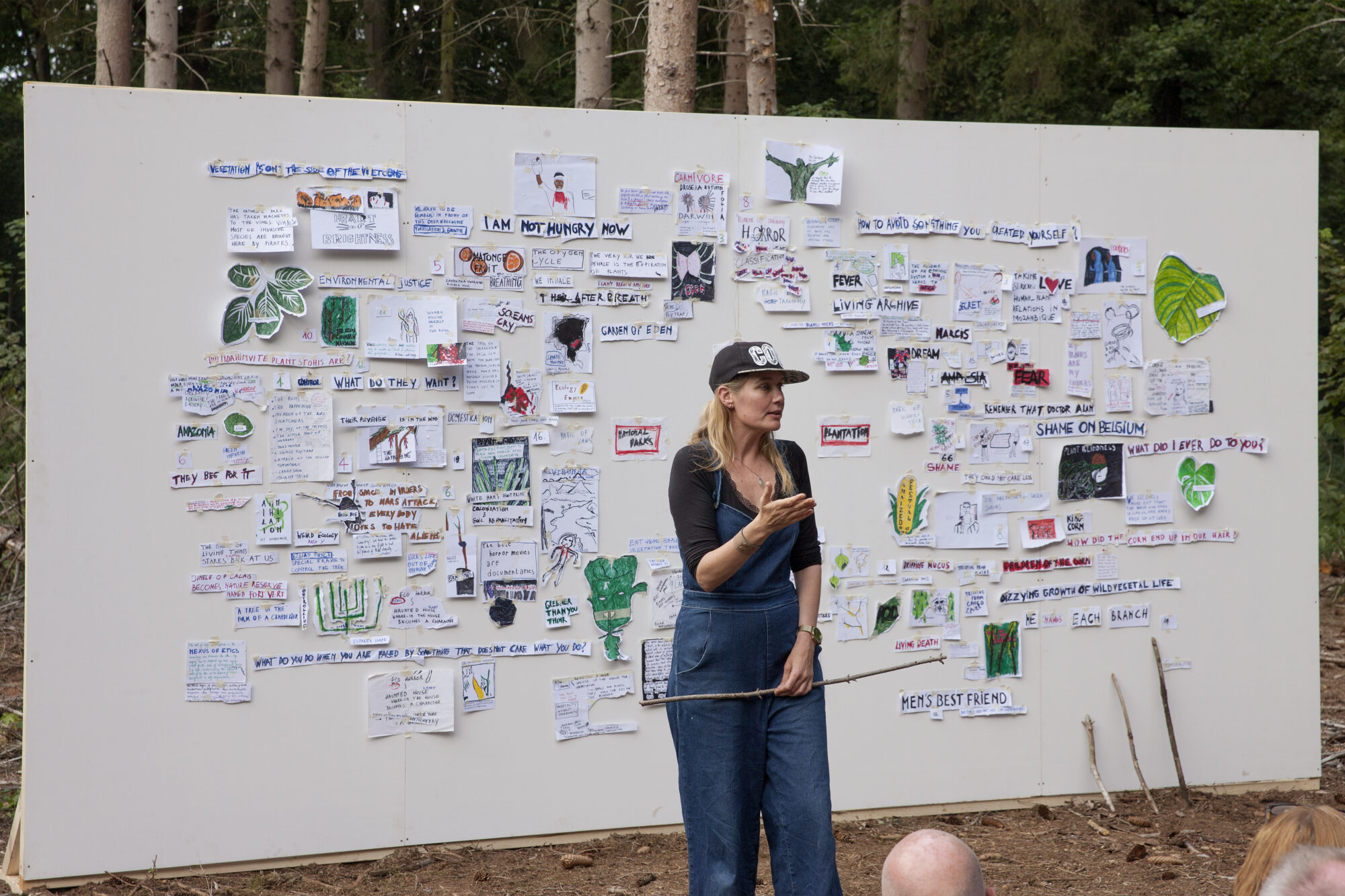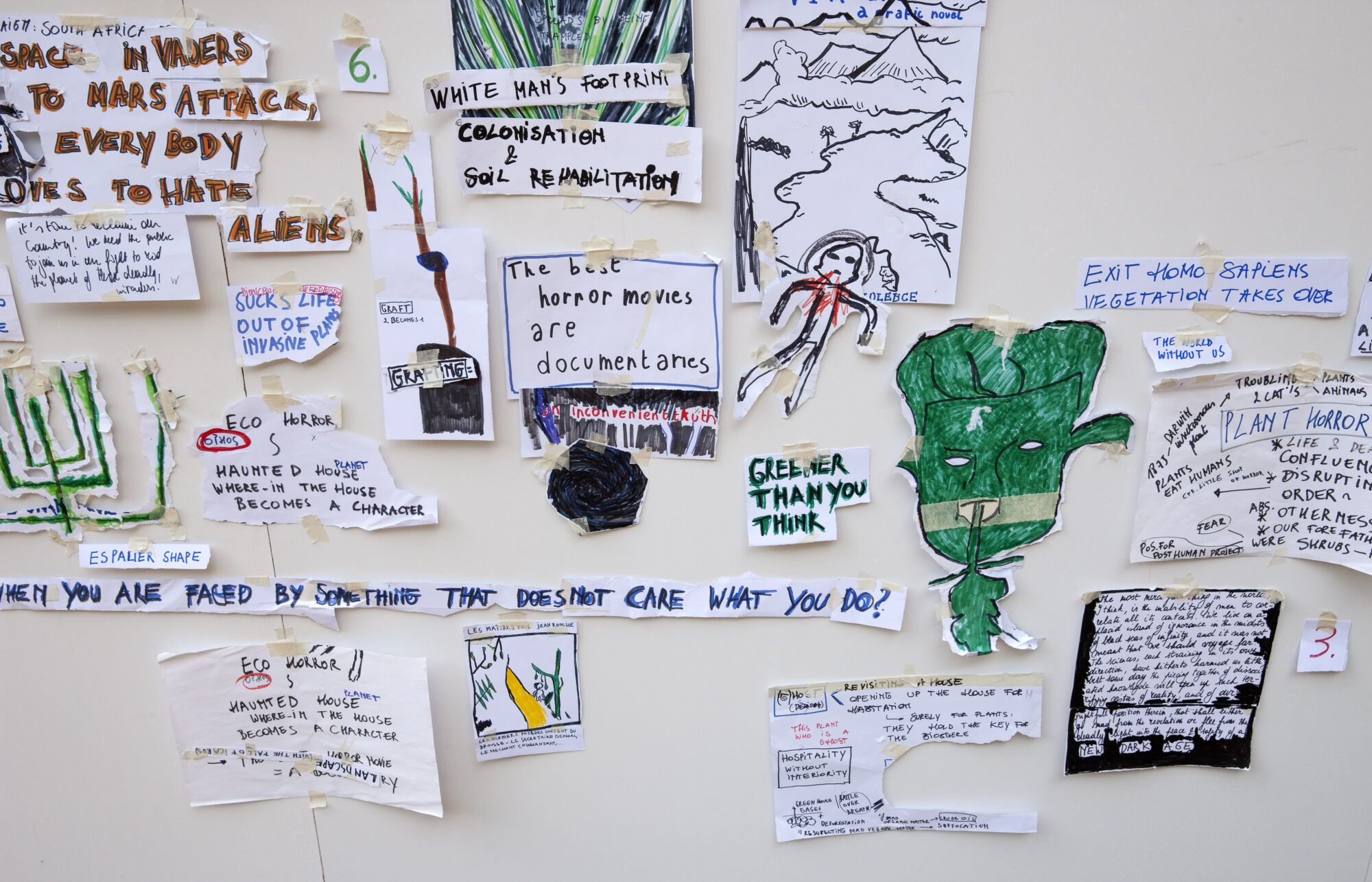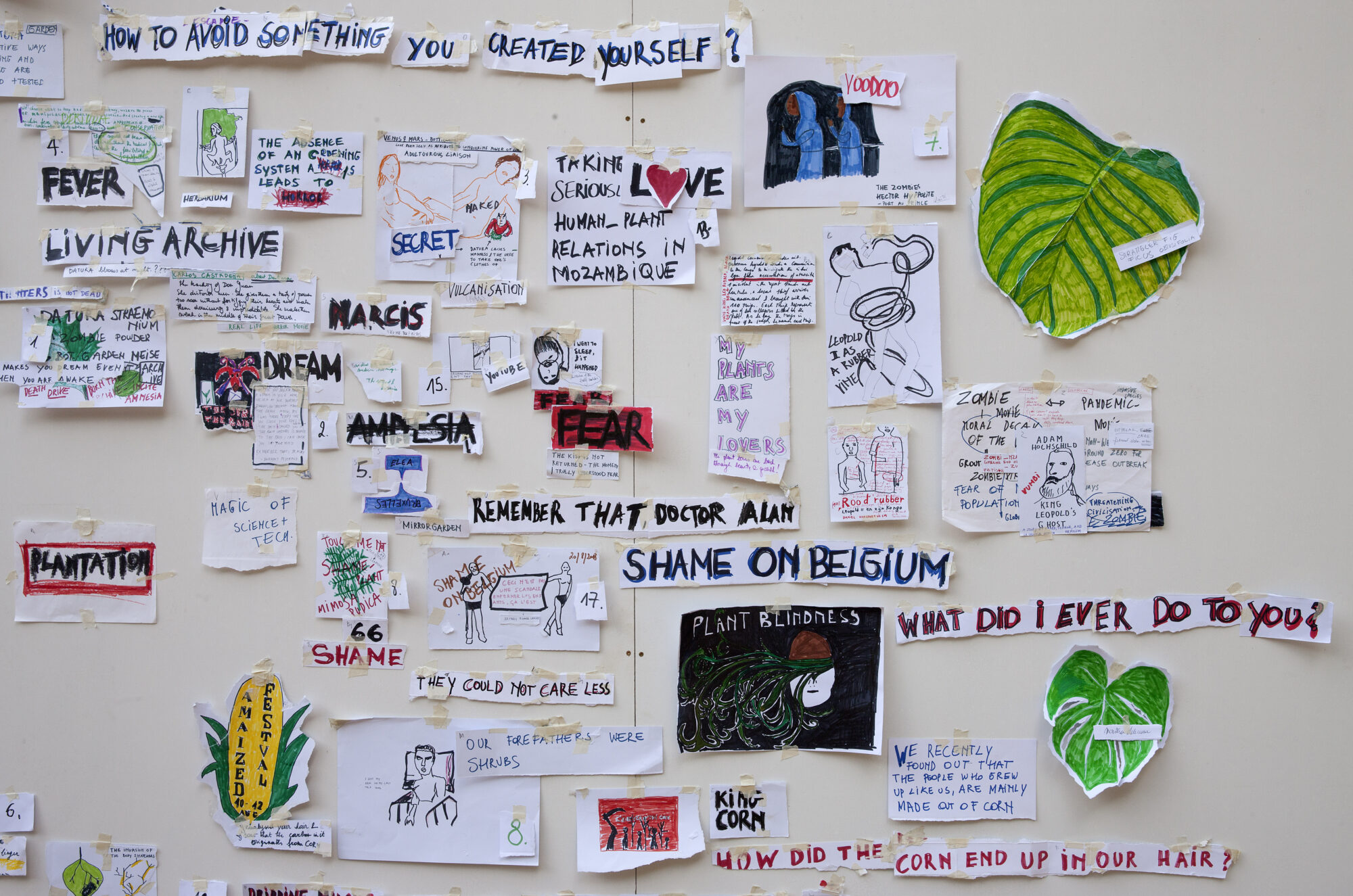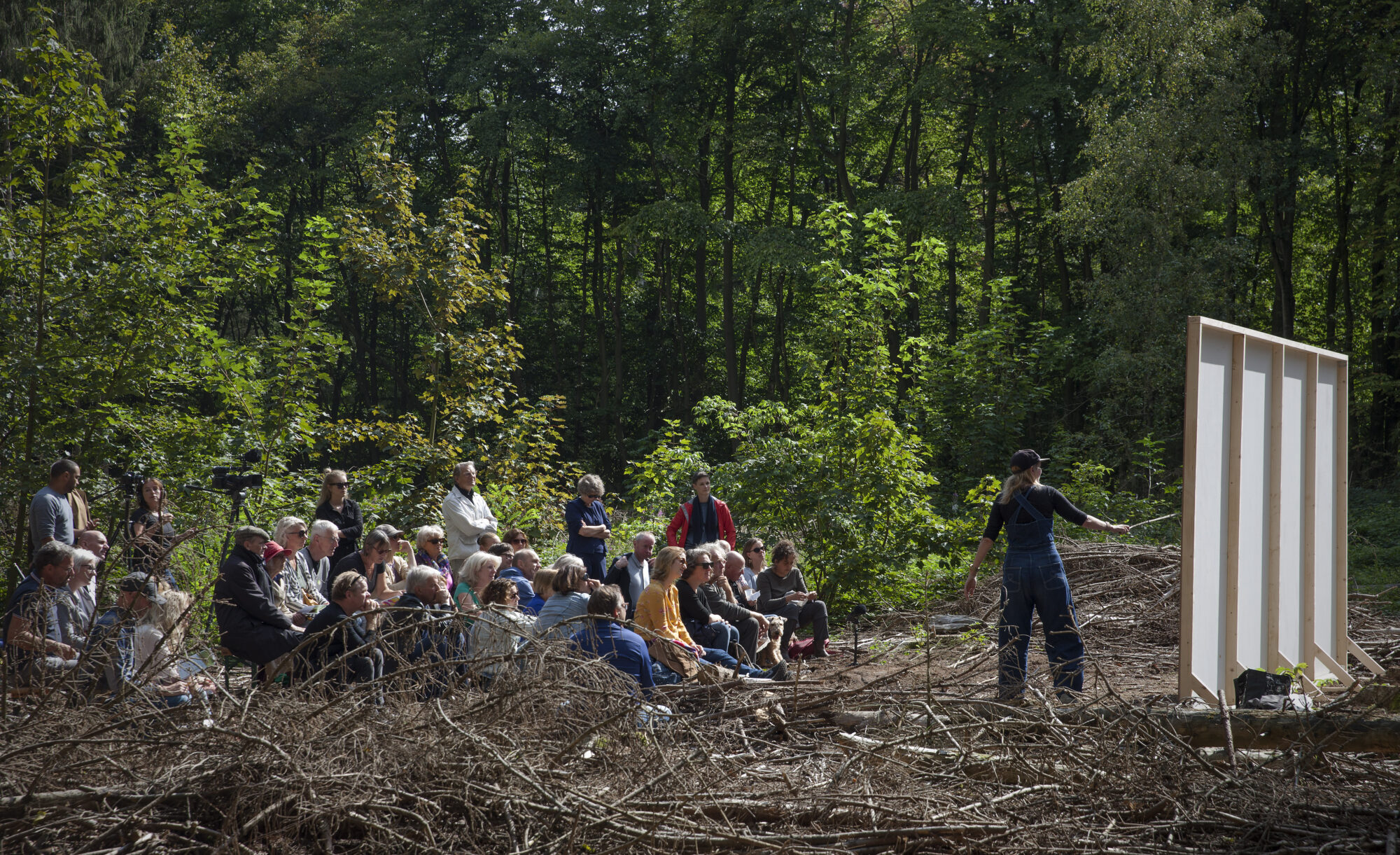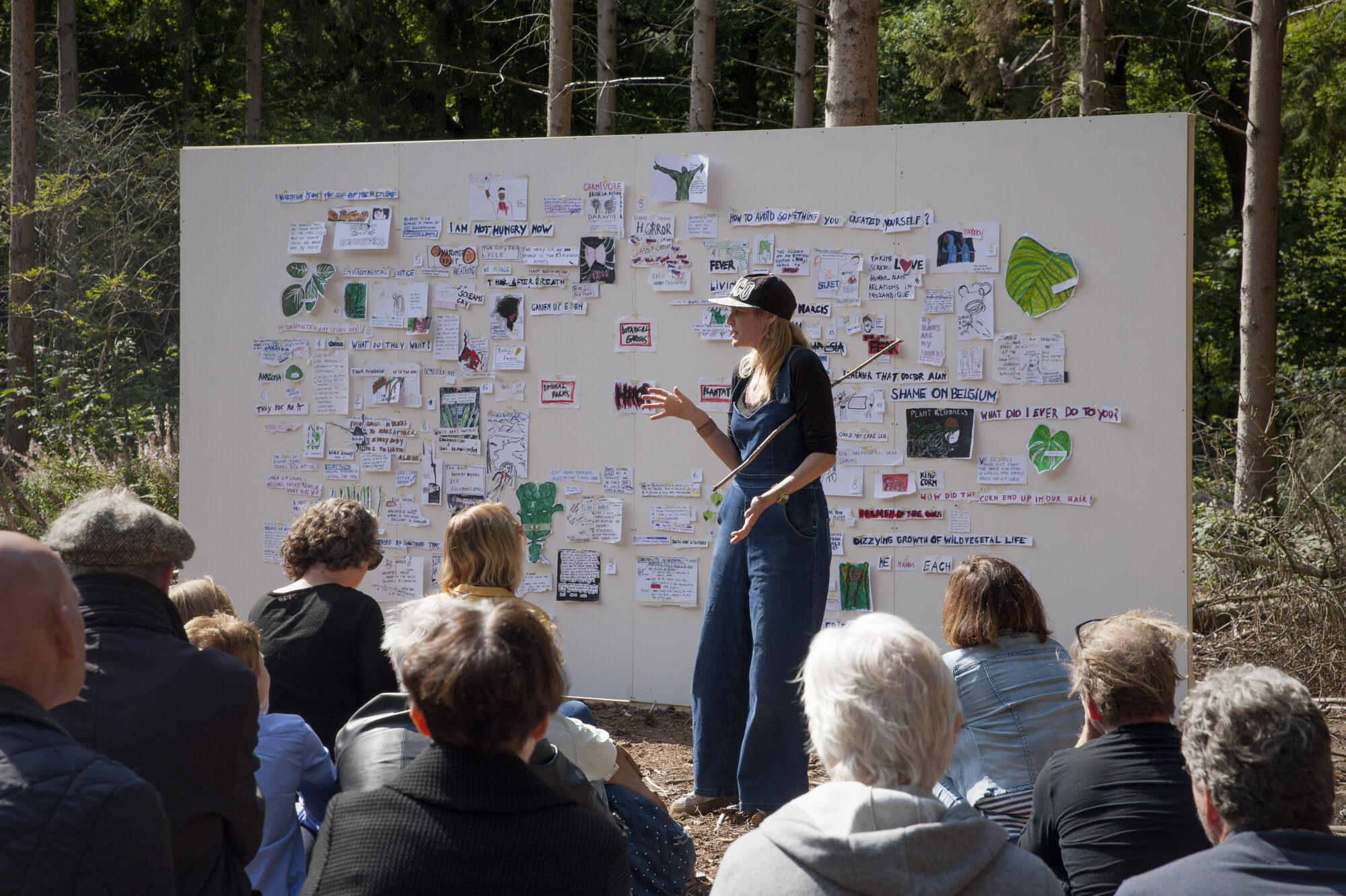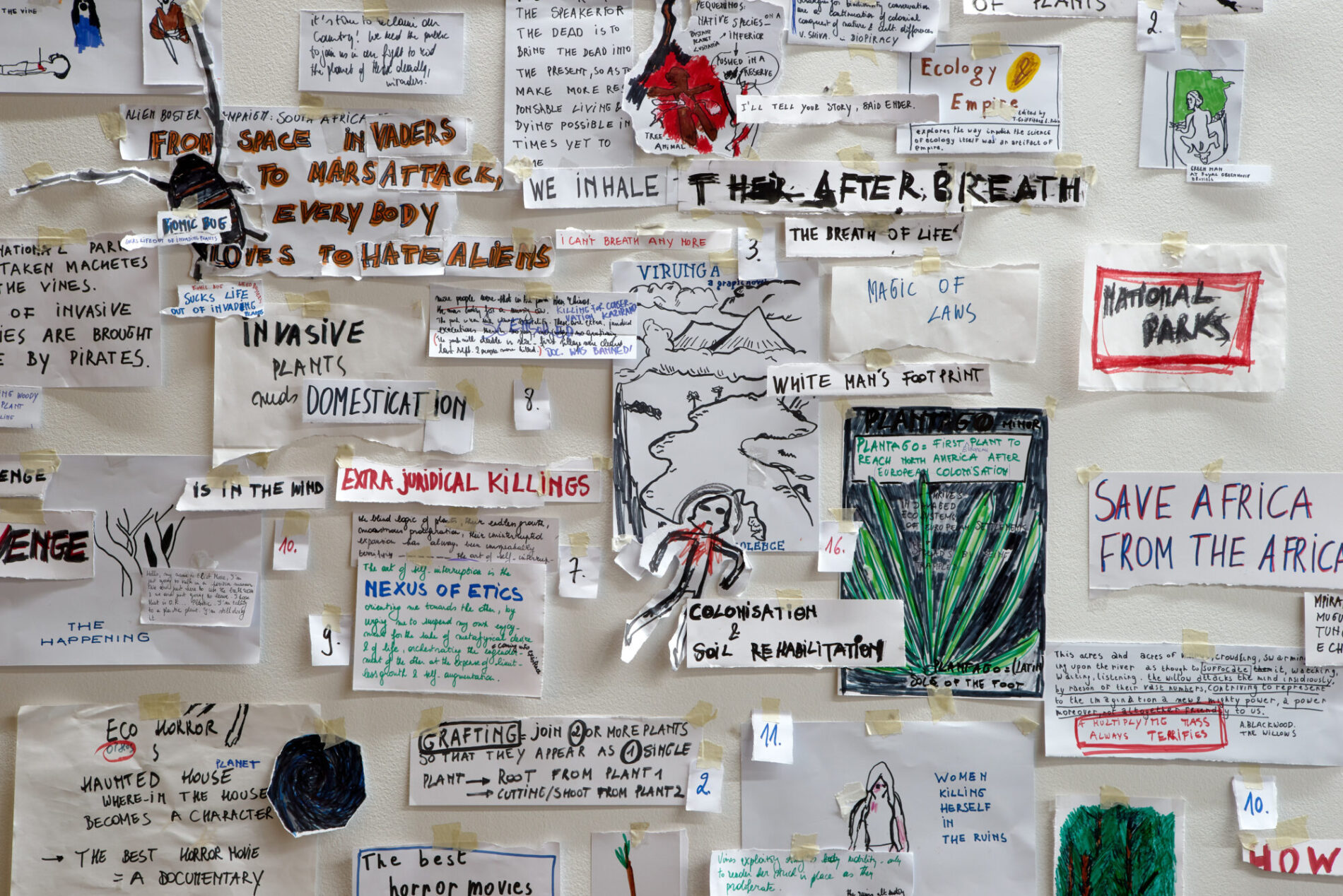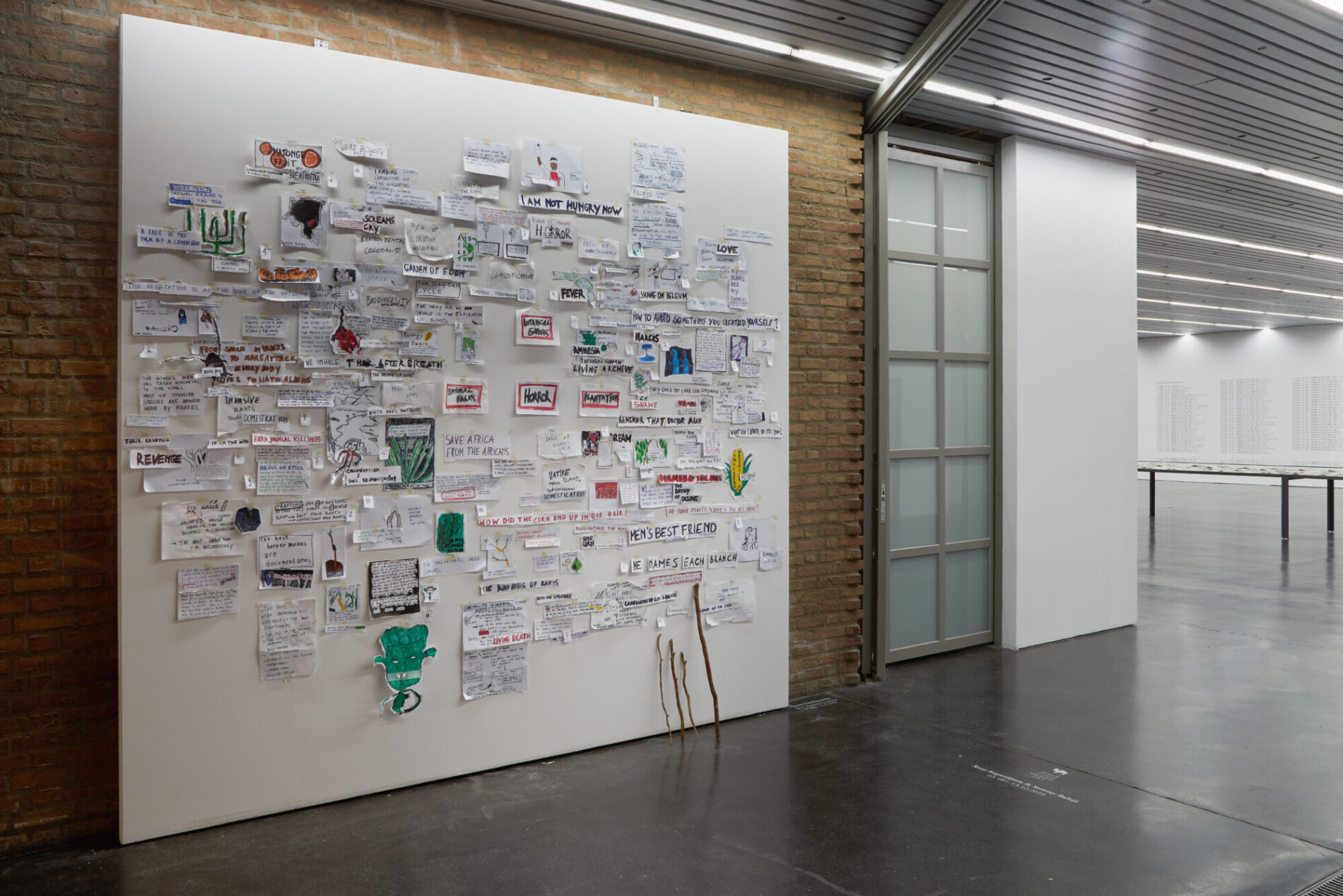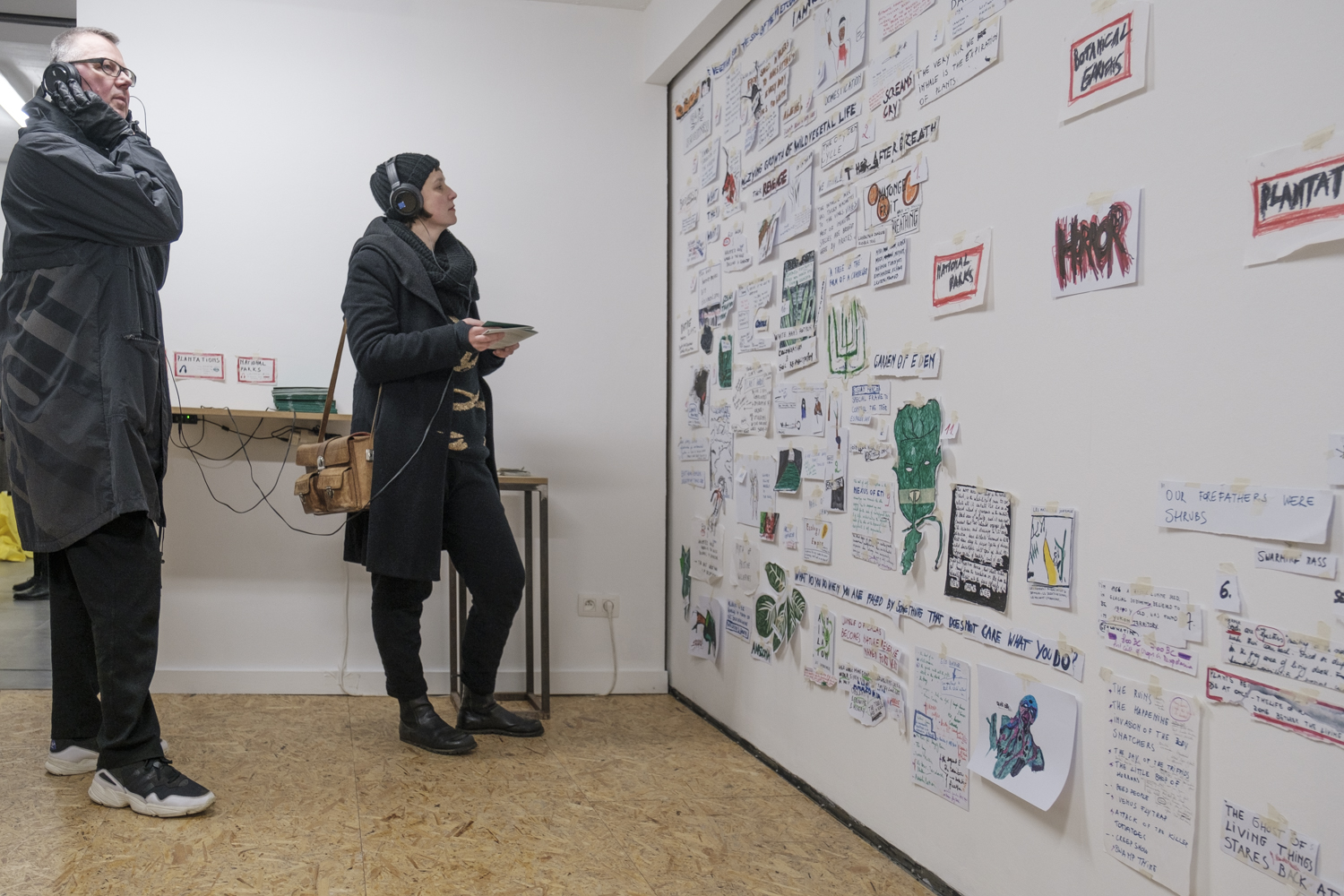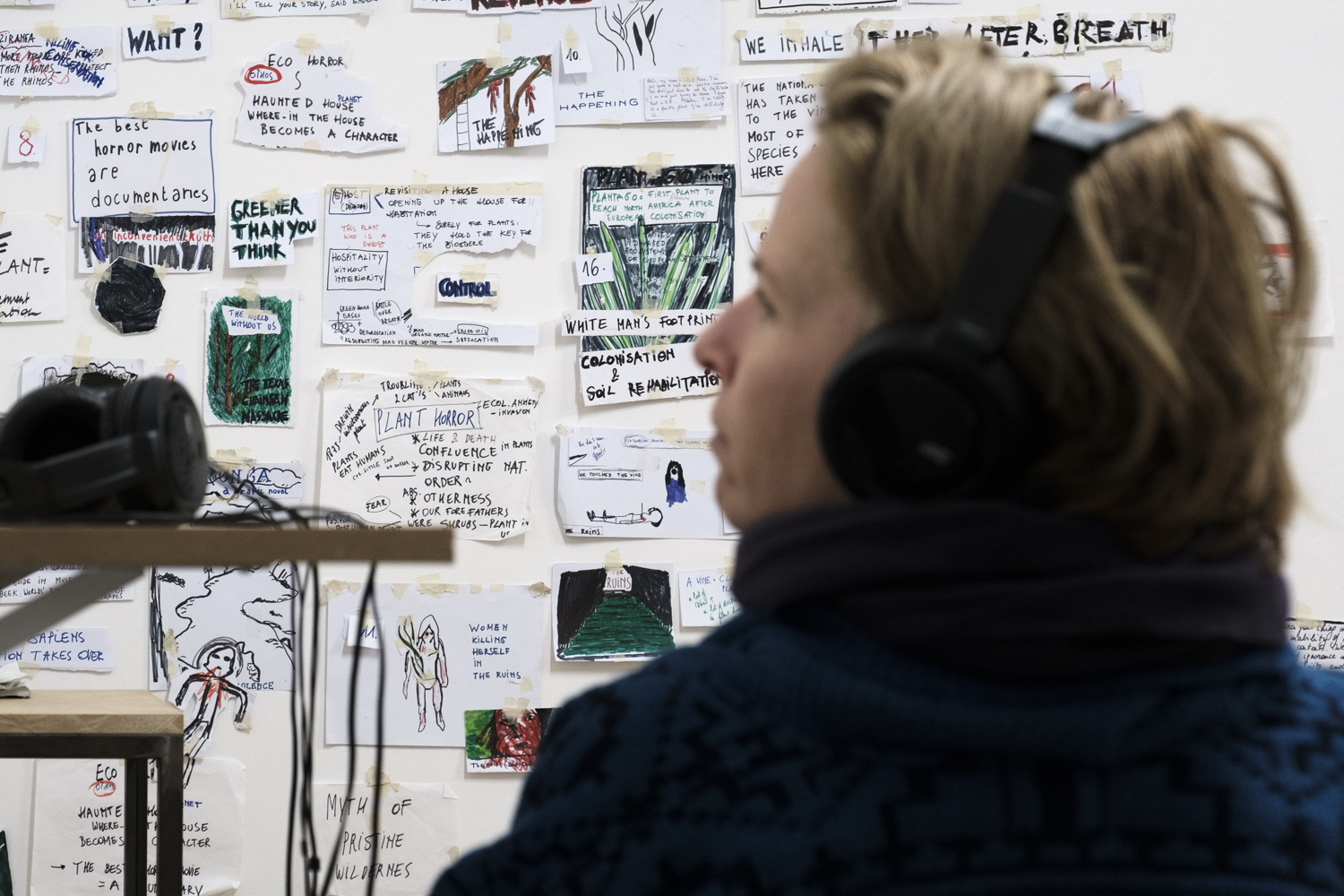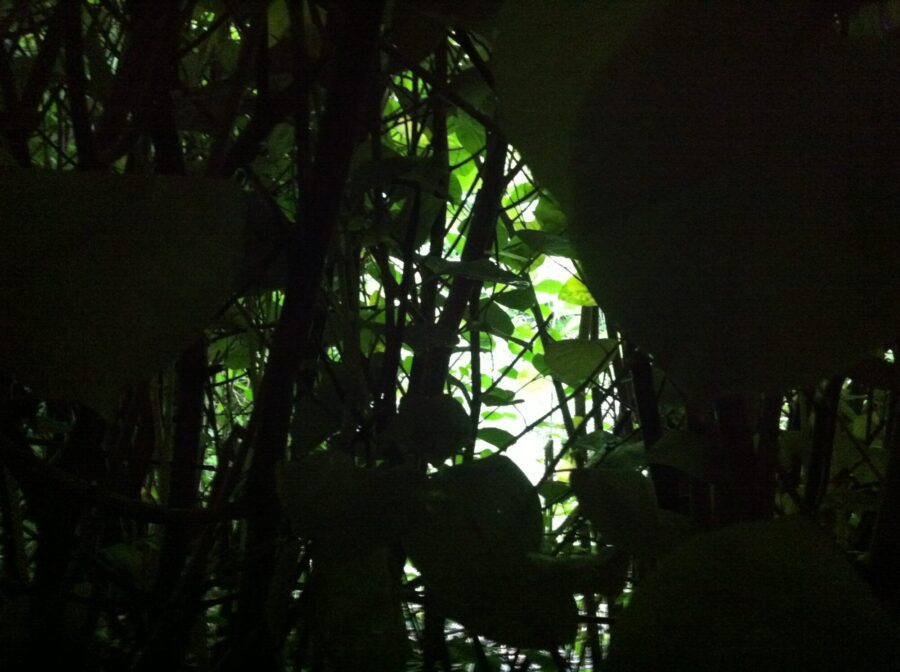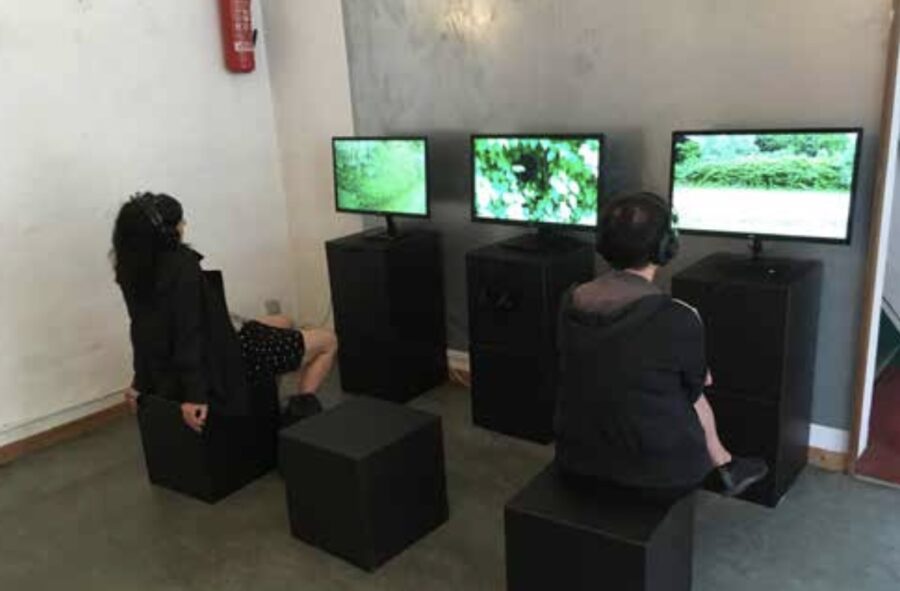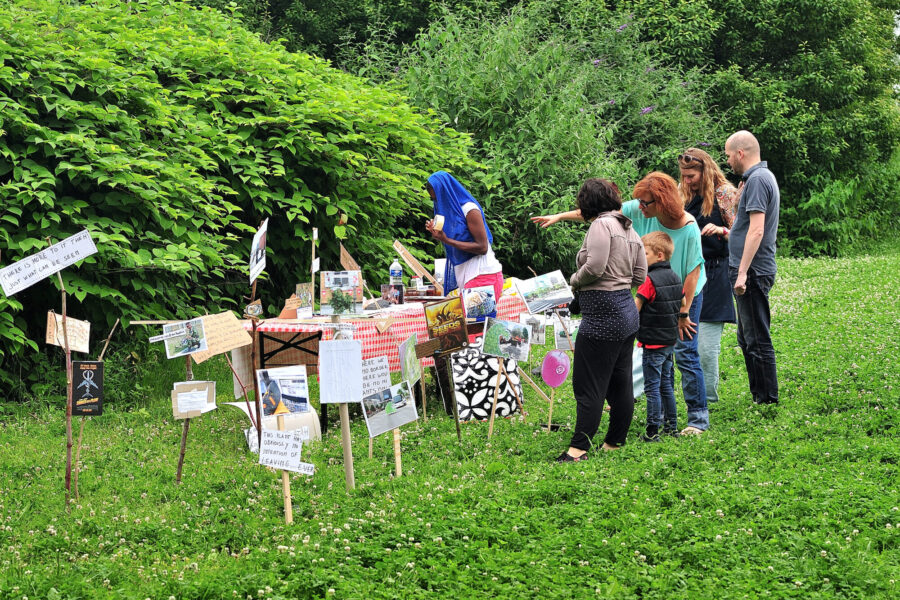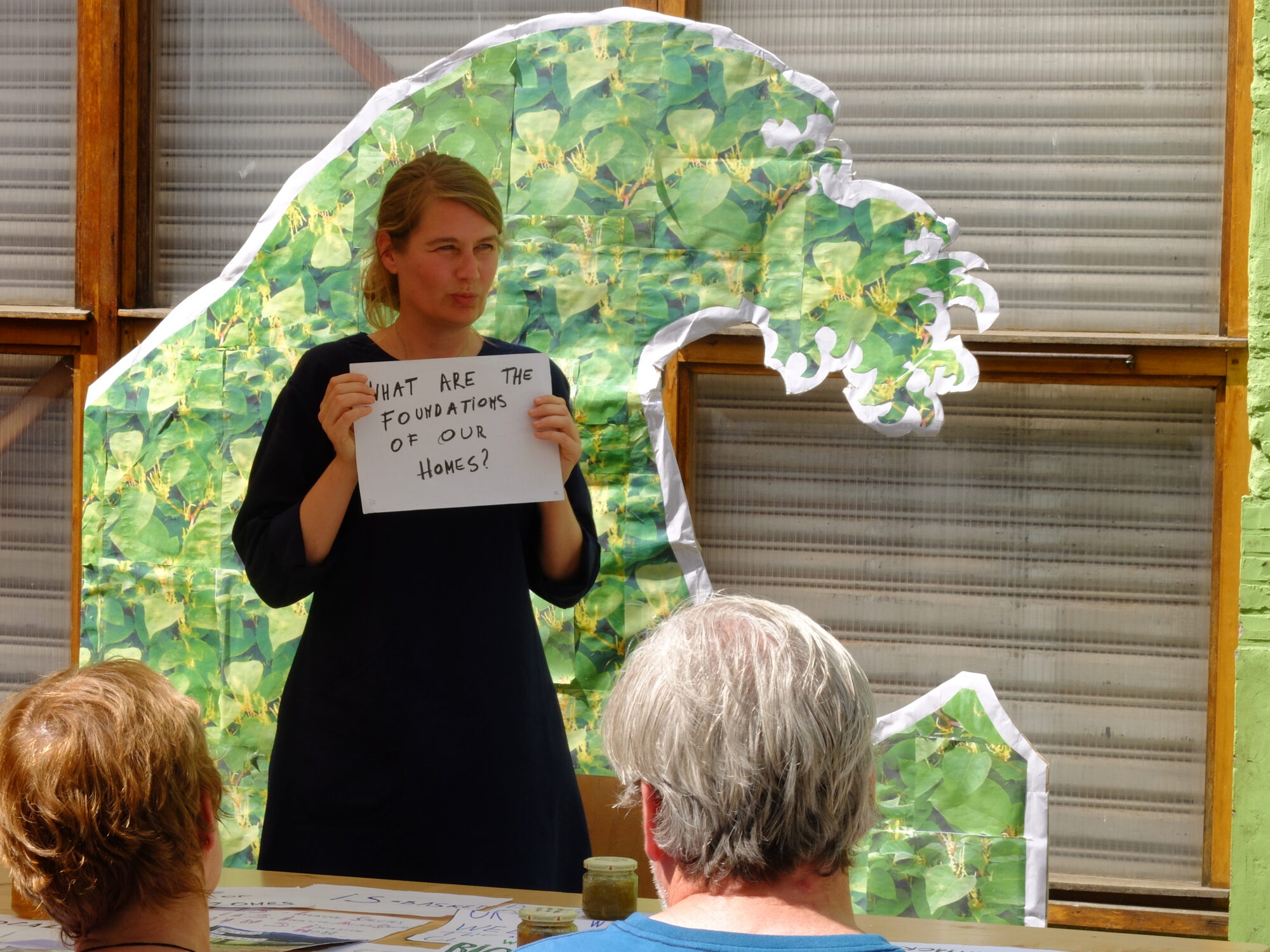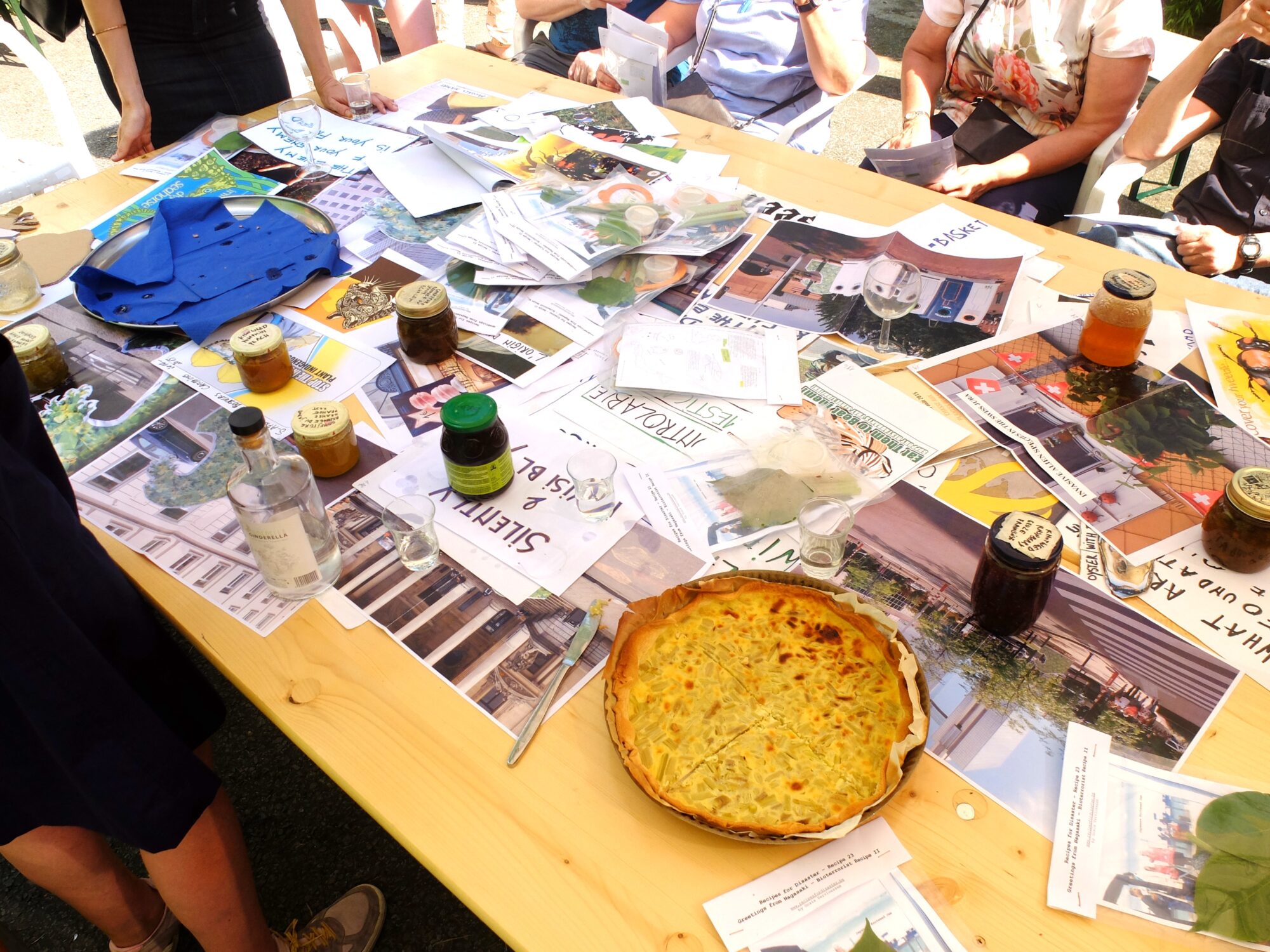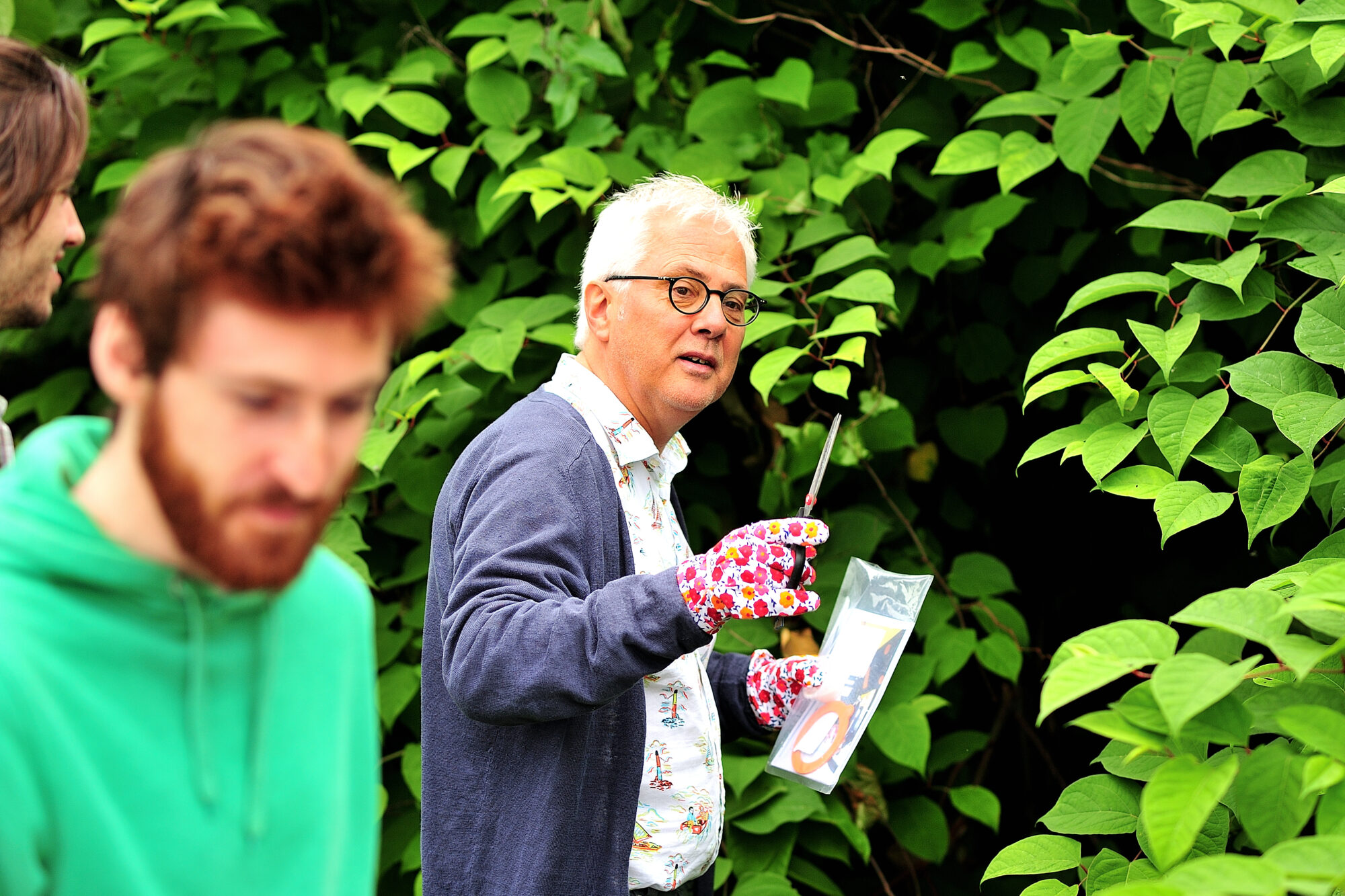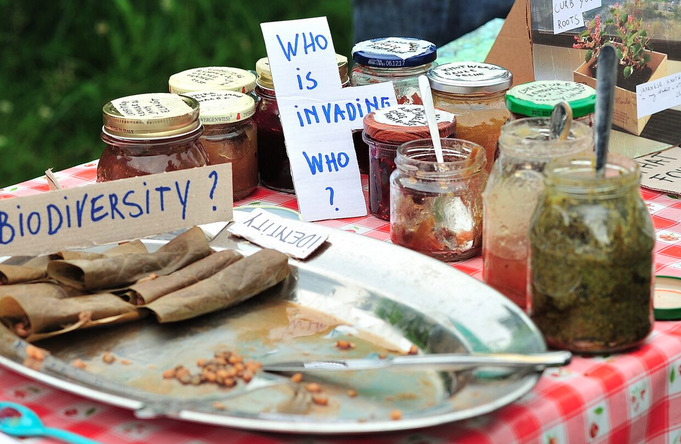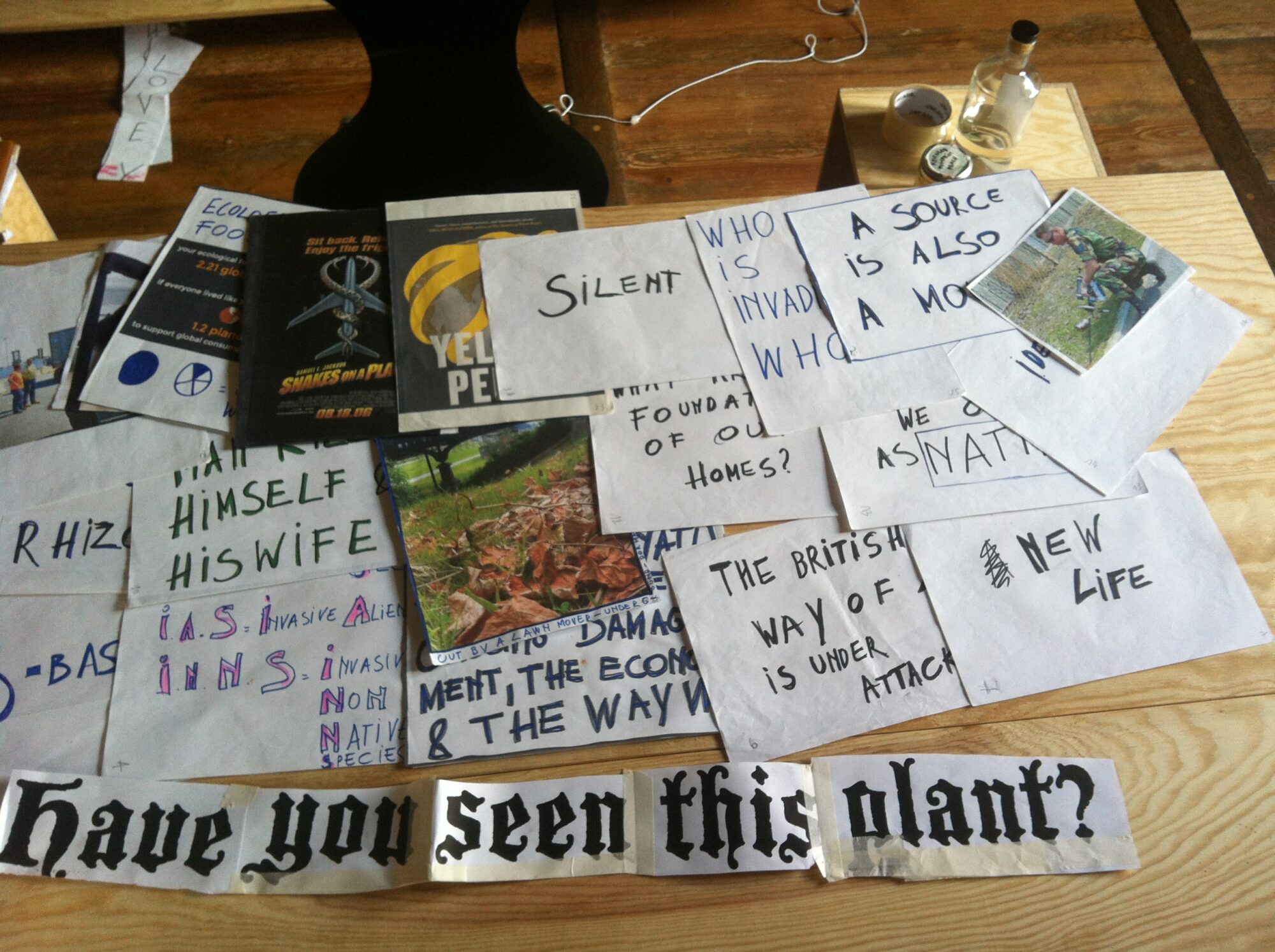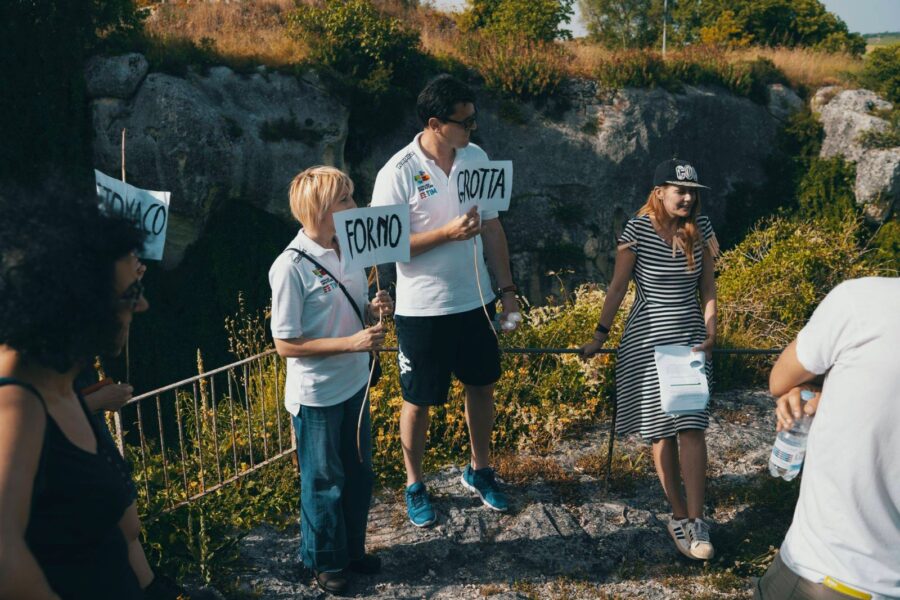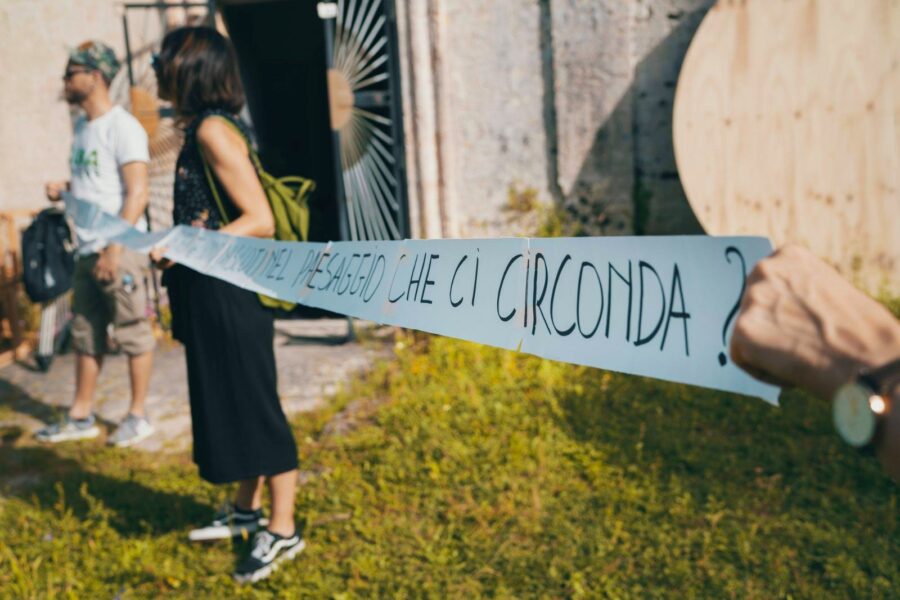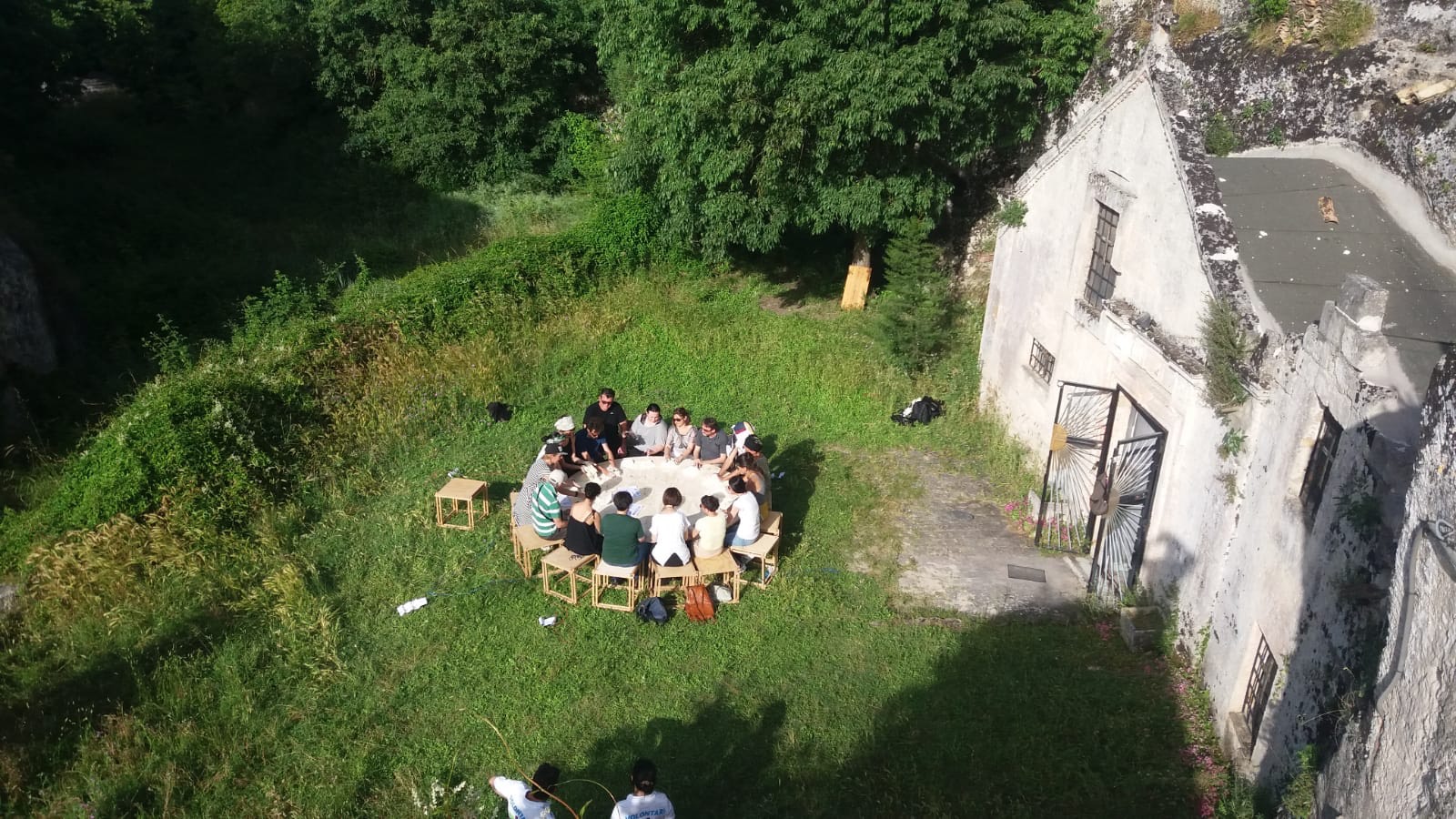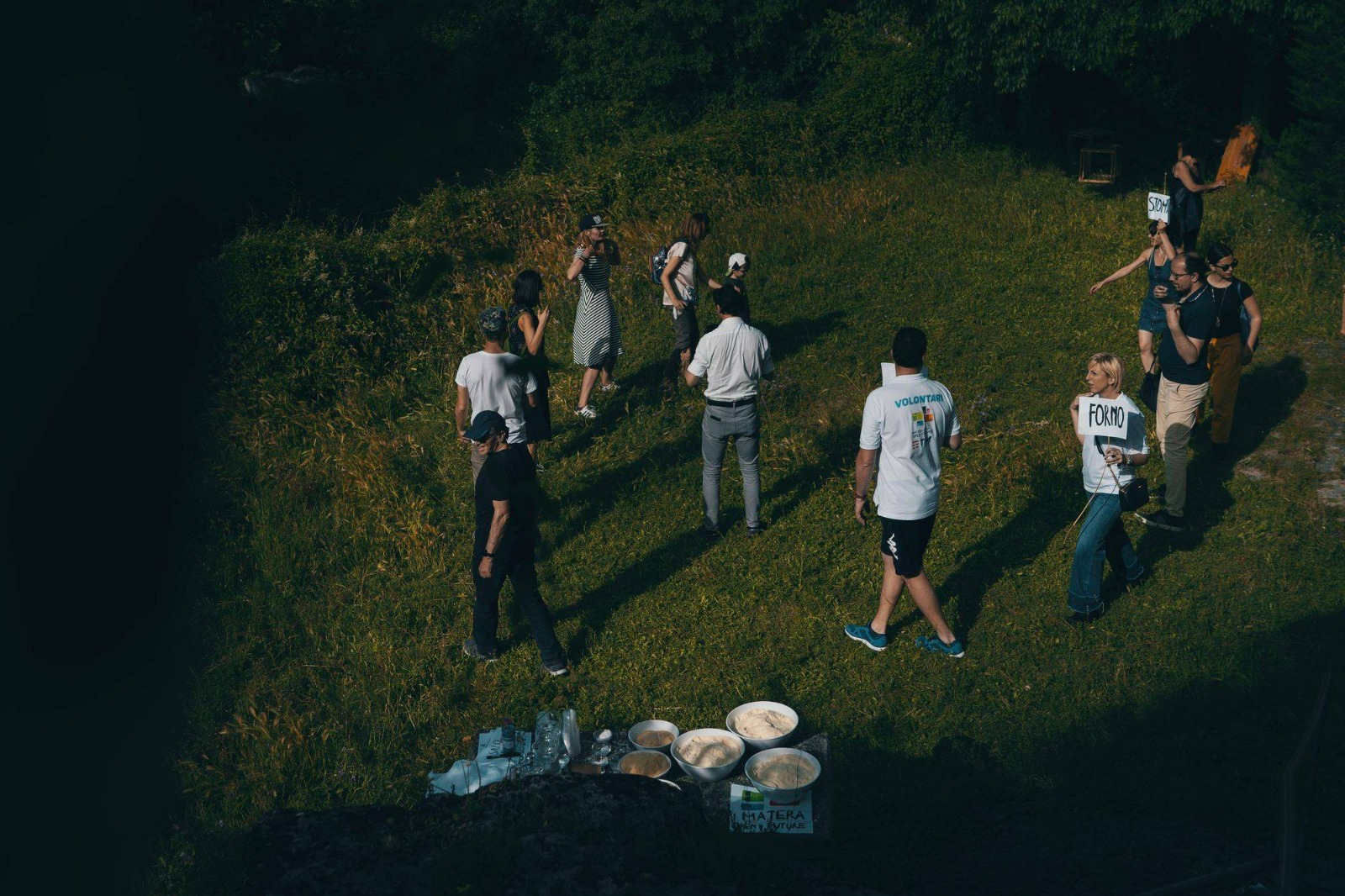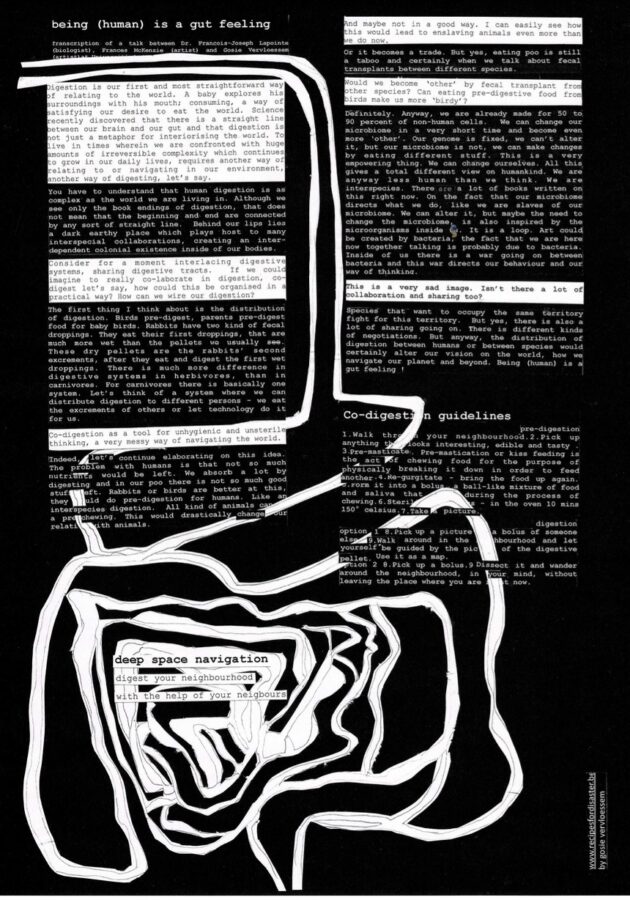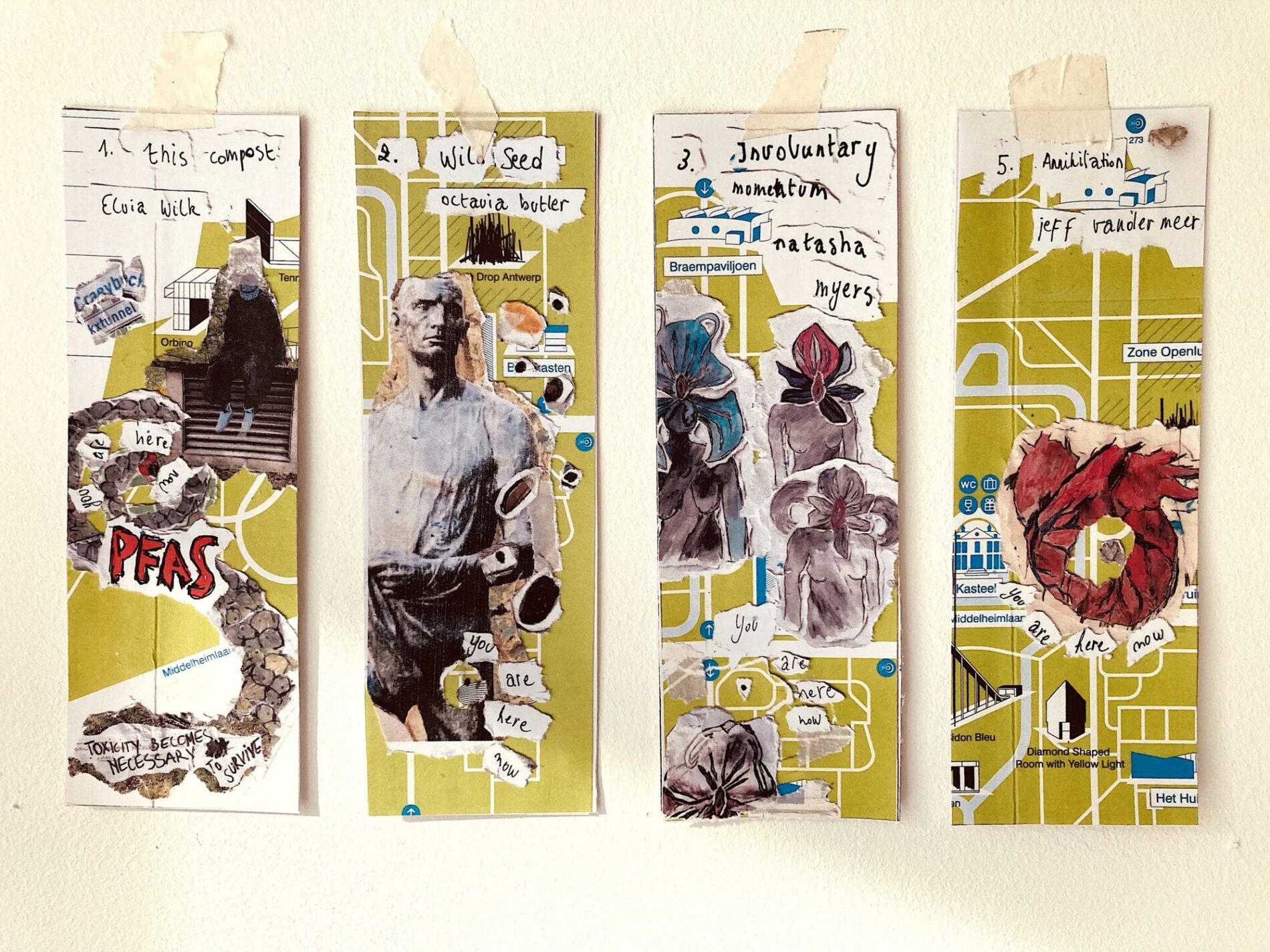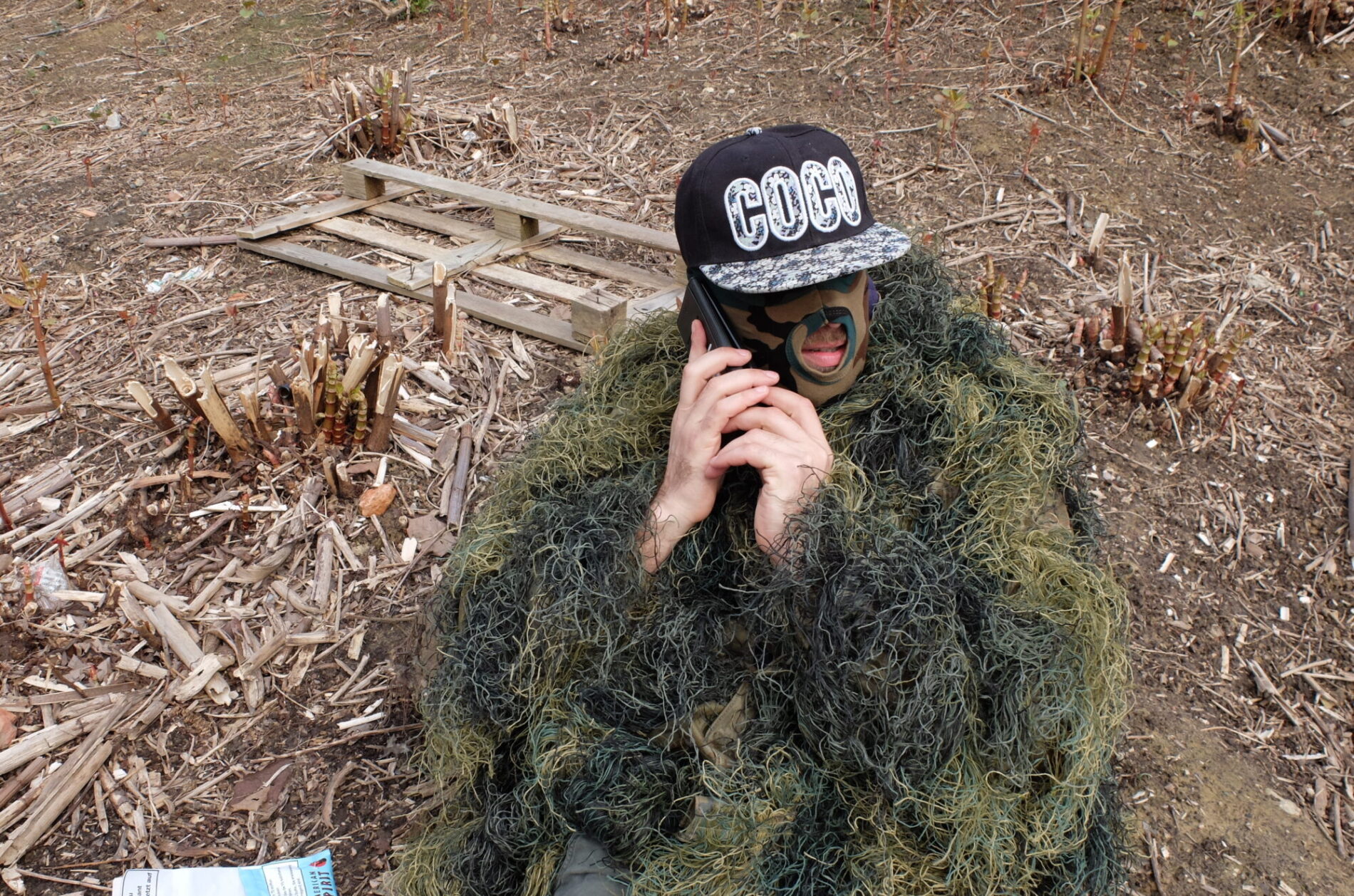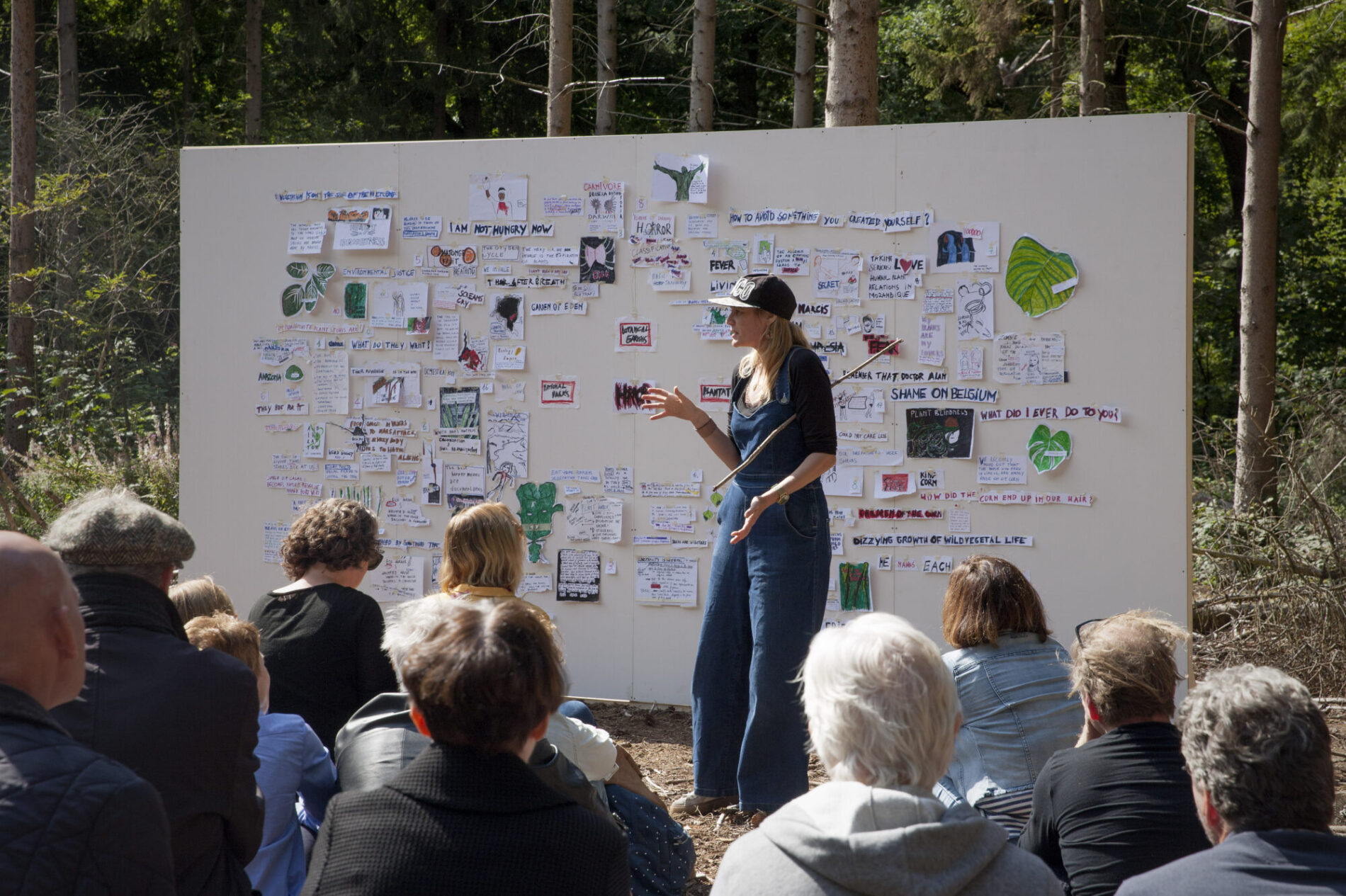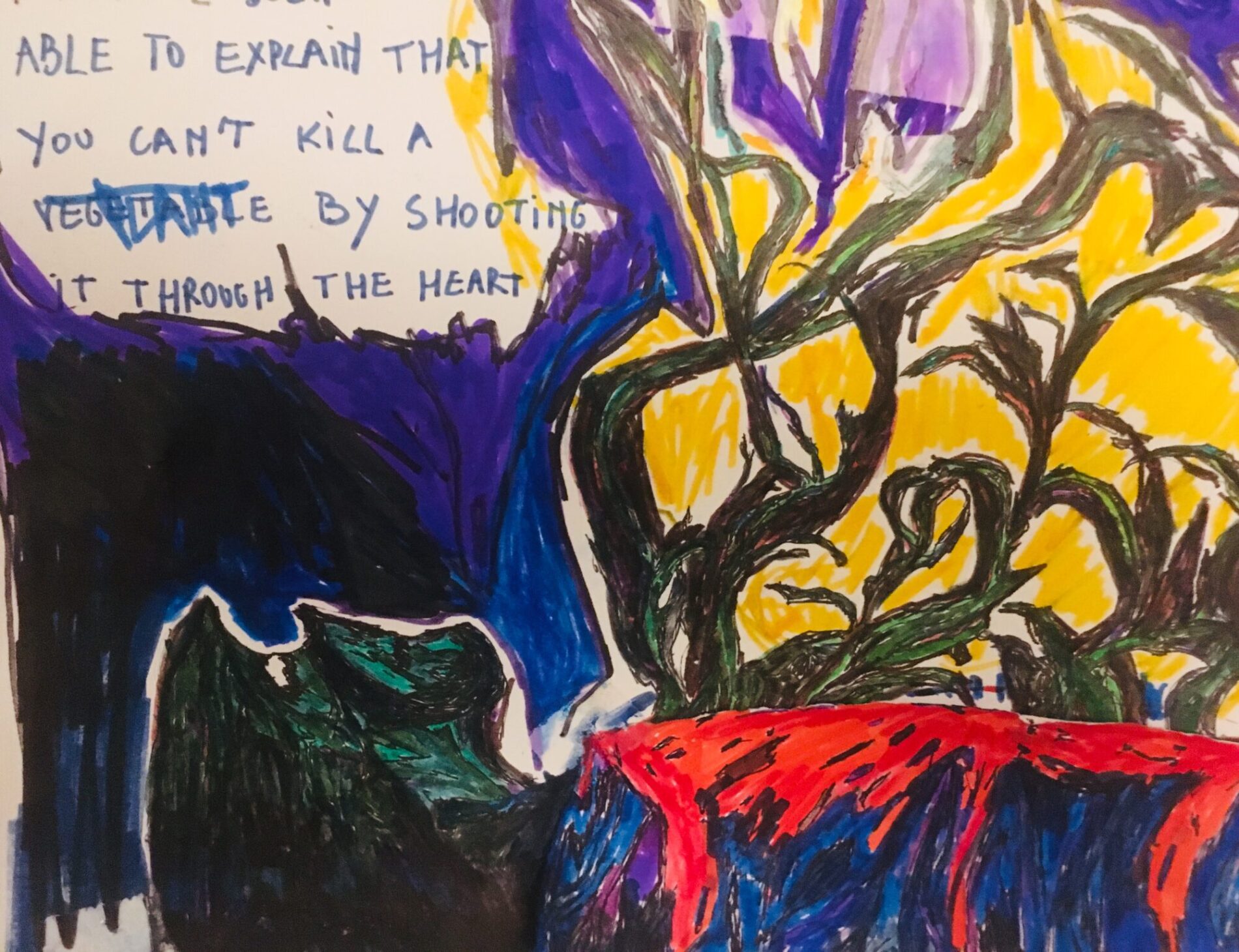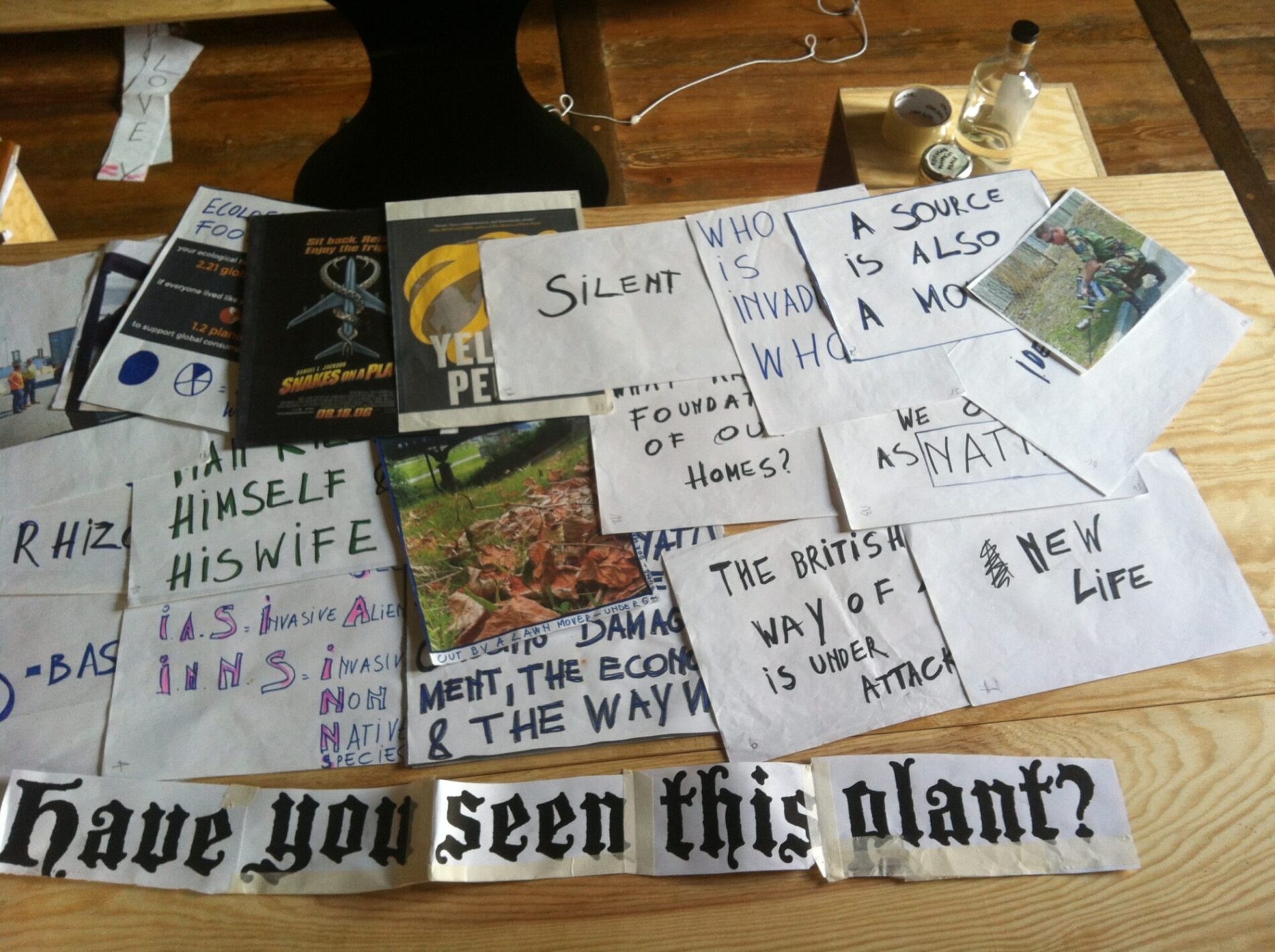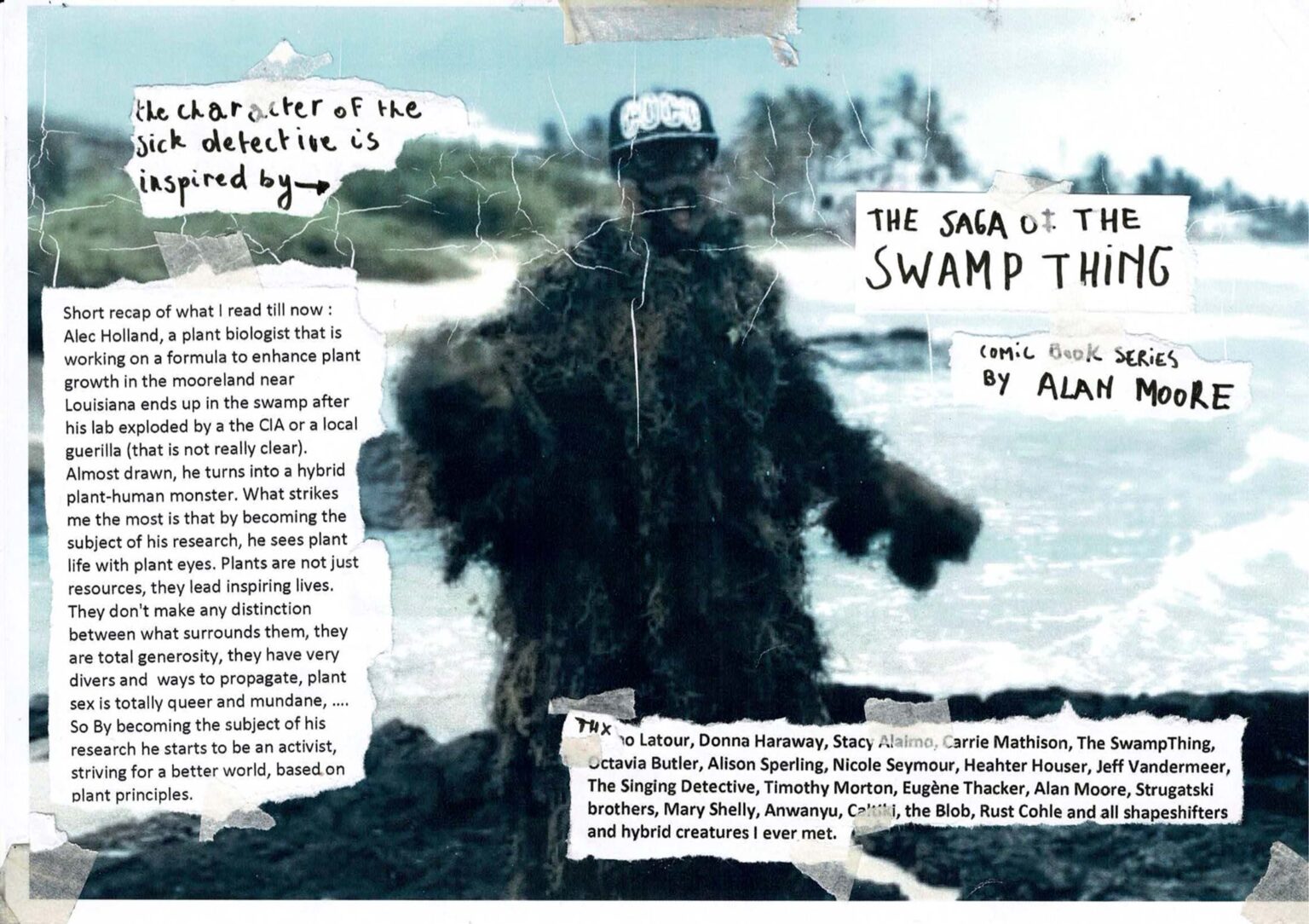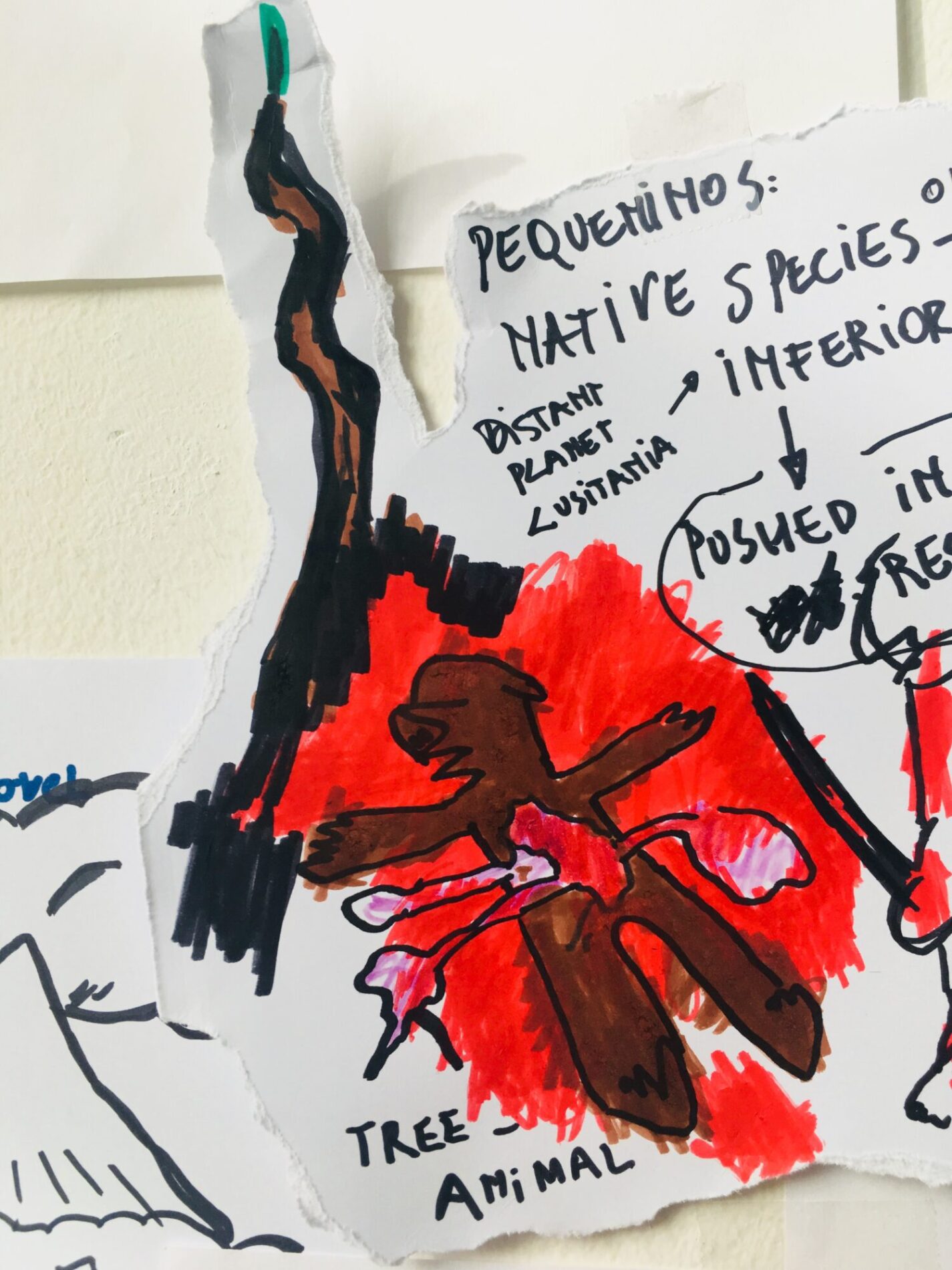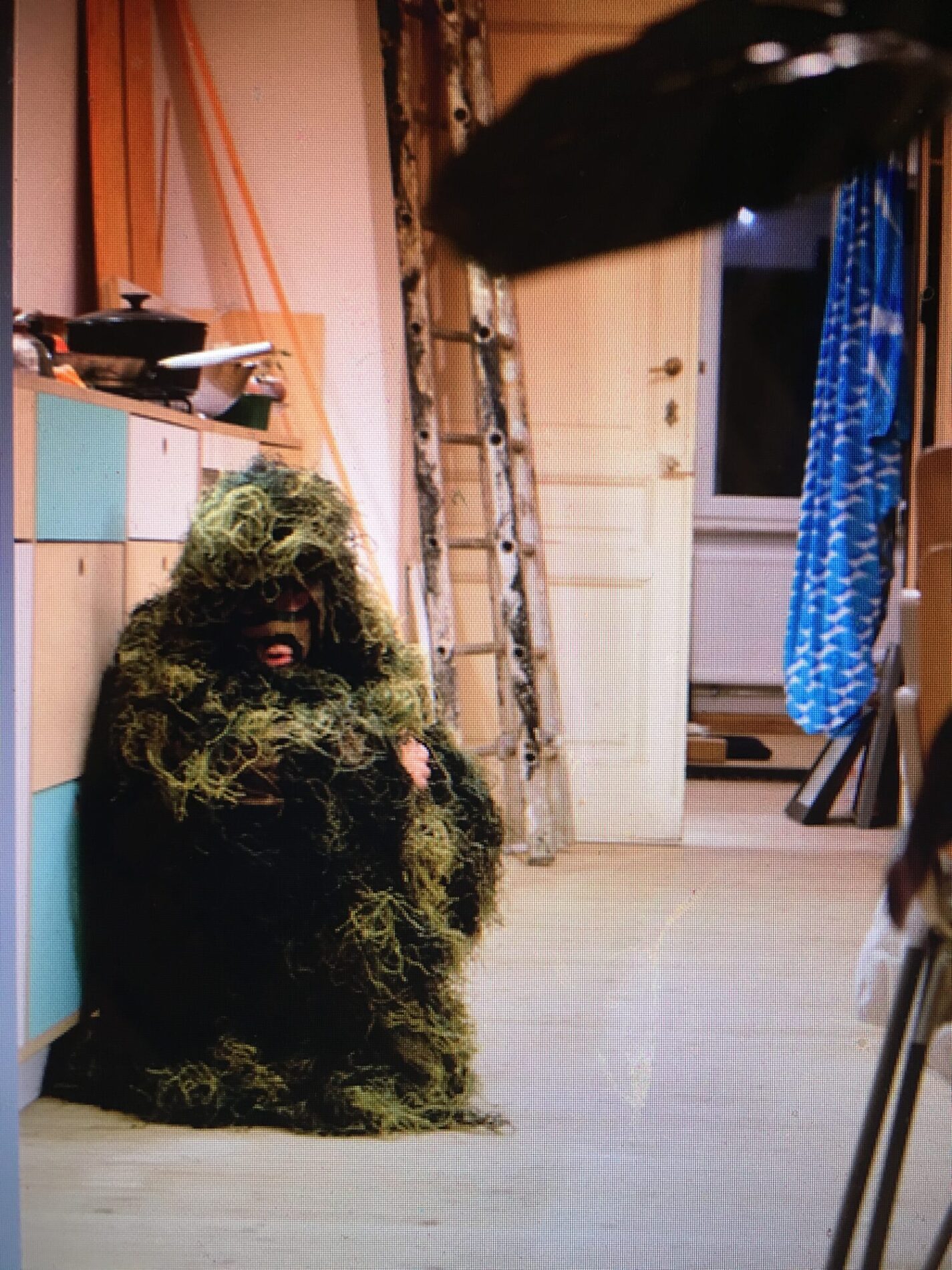Monsters Assembly is a collective that is convened by wpZimmer. It is initiated by Helga Baert and Gosie Vervloessem (wpZimmer) and is guided through the artistic practices of Leonardo Delogu and Carolina Mendonça. Monsters School is a collective work authored by Monsters Assembly: Leonardo Delogu (artist), Carolina Mendonça (artist), Gosie Vervloessem (artist-curator), Dušica Dražić (artistic advisor), Alex Schuurbiers (community worker) and 8 participants Prisca-Agnes Nishimwe, Laurent Delom de Mézerac, Joud Toamah, Lois Loumonga Brochez, Elien Verschueren, Kaori Ishiguro, Denys Shantar and Miles Fischler.
Monsters School (2024, Middelheim, part of Come Closer expo) is a collective and durational experiment, a performative transformation of “school” into a space of co-creation. This process of becoming other is a practice of unlearning and undoing while being many. Therefore we sustain a space of studying and practicing together, sharing knowledge and experiences. The process of undoing that we envision is not a process of healing but in the first place a process of co-creation that is rooted in vulnerability, but equally pleasure. We seek in the pleasure of undoing (rather than doing), a sensuality that is rooted in the body and the senses. The school studies and experiments with what monstrosity could be – a monster has blurry borders, is excessive, hypersensitive – an incoherent assemblage. During Monsters School we are empowered through becoming a living monstrosity. As monsters we show something that is not easy or comfortable to see or perceive. We speculate with different narratives and experiment with tools and formats that explore and enhance the monstrosity in ourselves by becoming more attuned to and challenging the world we inhabit. We see this exploration as necessary for survival and creating livable worlds.
The curriculum deals with exploring and expanding our sensitivity and modes of perception. How can we sharpen our perception? Is it possible to create different eyes, ears, senses?
It is a space where we will attempt to cultivate practices of collective sensing that favours opacity to clarity, multiplicity to homogeneity, dissonance to consonance.
Monsters School is an exercise in looking at schools as more than institutions. We look at them as ‘gatherings/assemblies’ that make ‘free time’, a time for getting lost, being bored, making mistakes, a time of study, exercise and experiment. It is an experimental school that deals with the performatic potential of study.
Monsters School is a monstrous body, that challenges power relations. The roles of a scholar and a participant are fluid, and assigned only temporarily. Therefore the school is itself a monstrous being that challenges the power relations between all the beings that are part of it by suspending productivity. When suspension occurs, the roles that come with the concept of ‘school’ no longer apply.
https://blog.middelheimmuseum.be/nl/artikelen/monsters-dagen-de-school-uit
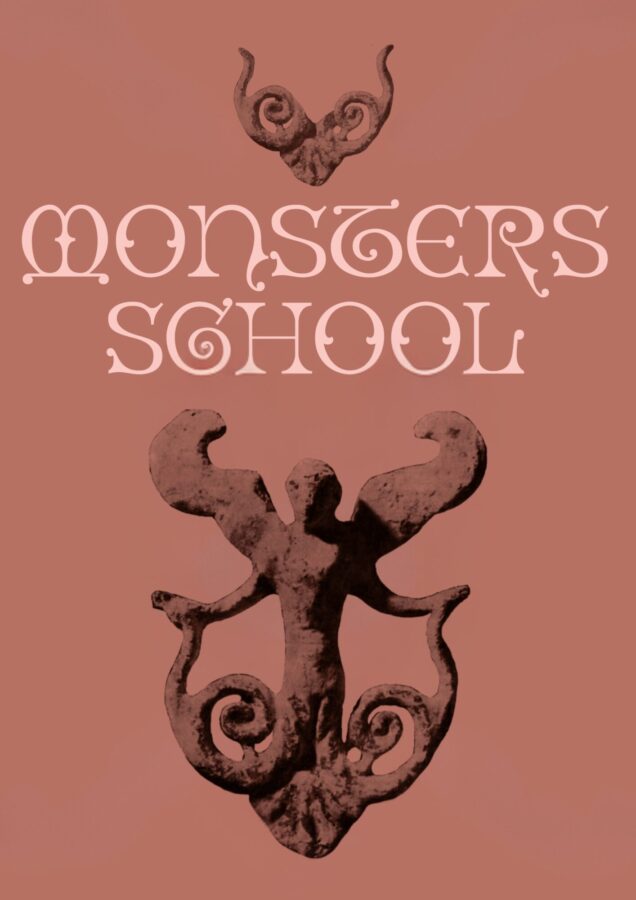
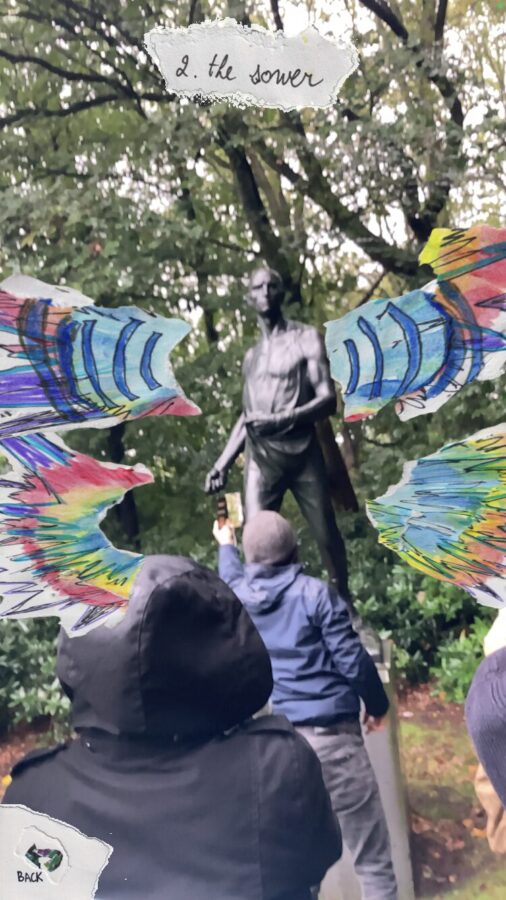
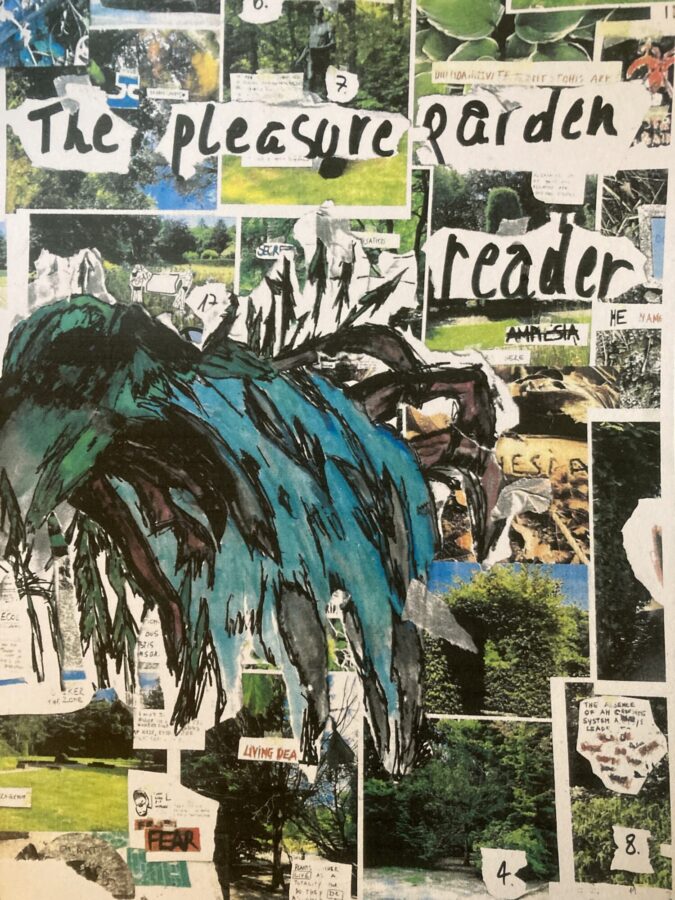

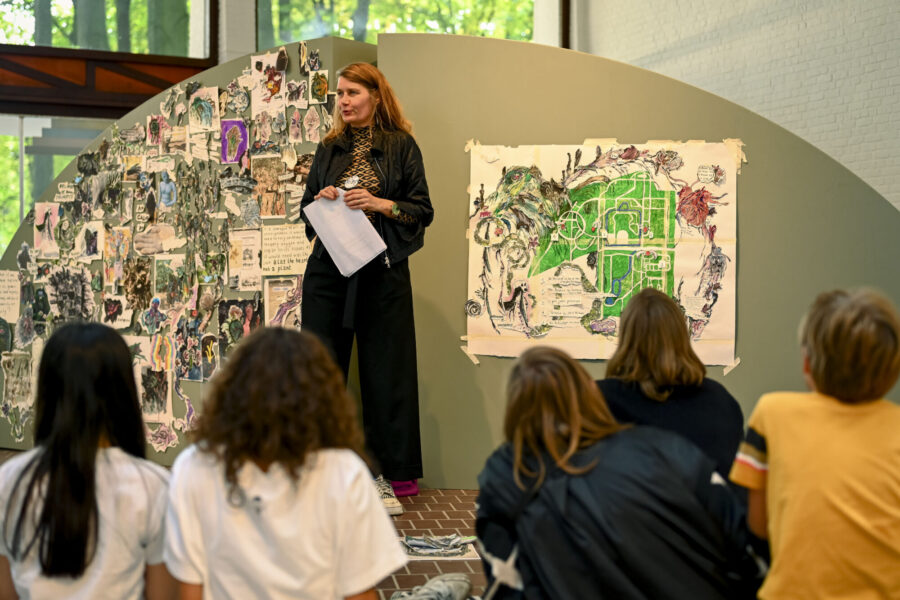
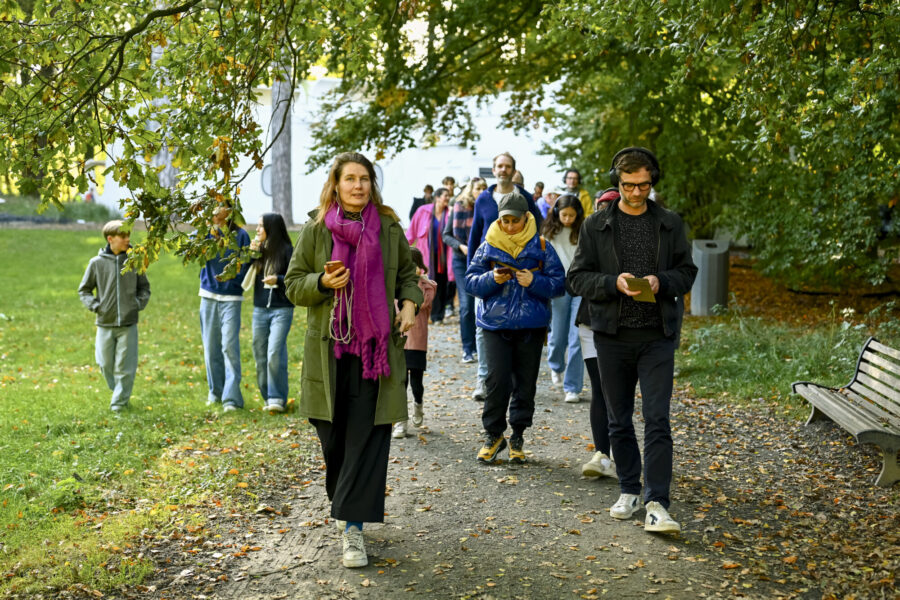 Next to the app which could be downloaded in the park, The Pleasure Garden was also a publication. Through this publication, The Pleasure Garden could be experienced at home.
Next to the app which could be downloaded in the park, The Pleasure Garden was also a publication. Through this publication, The Pleasure Garden could be experienced at home.